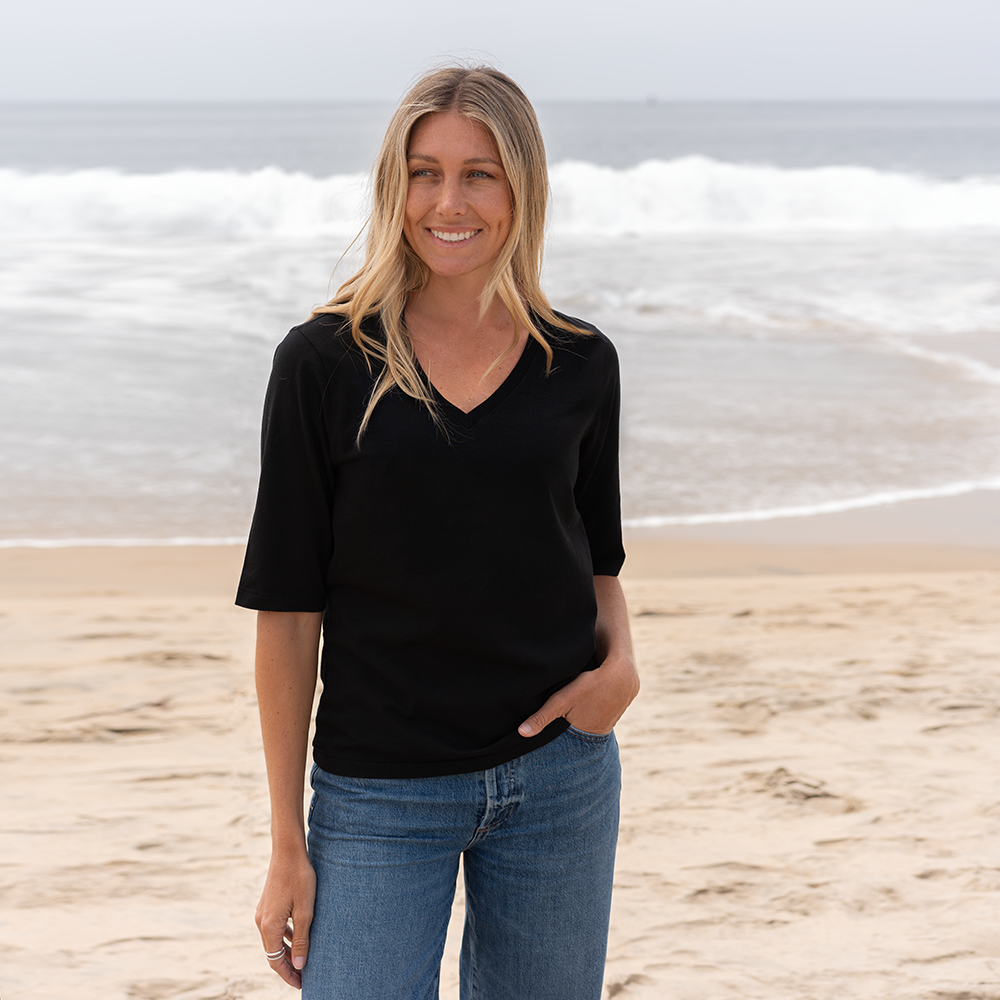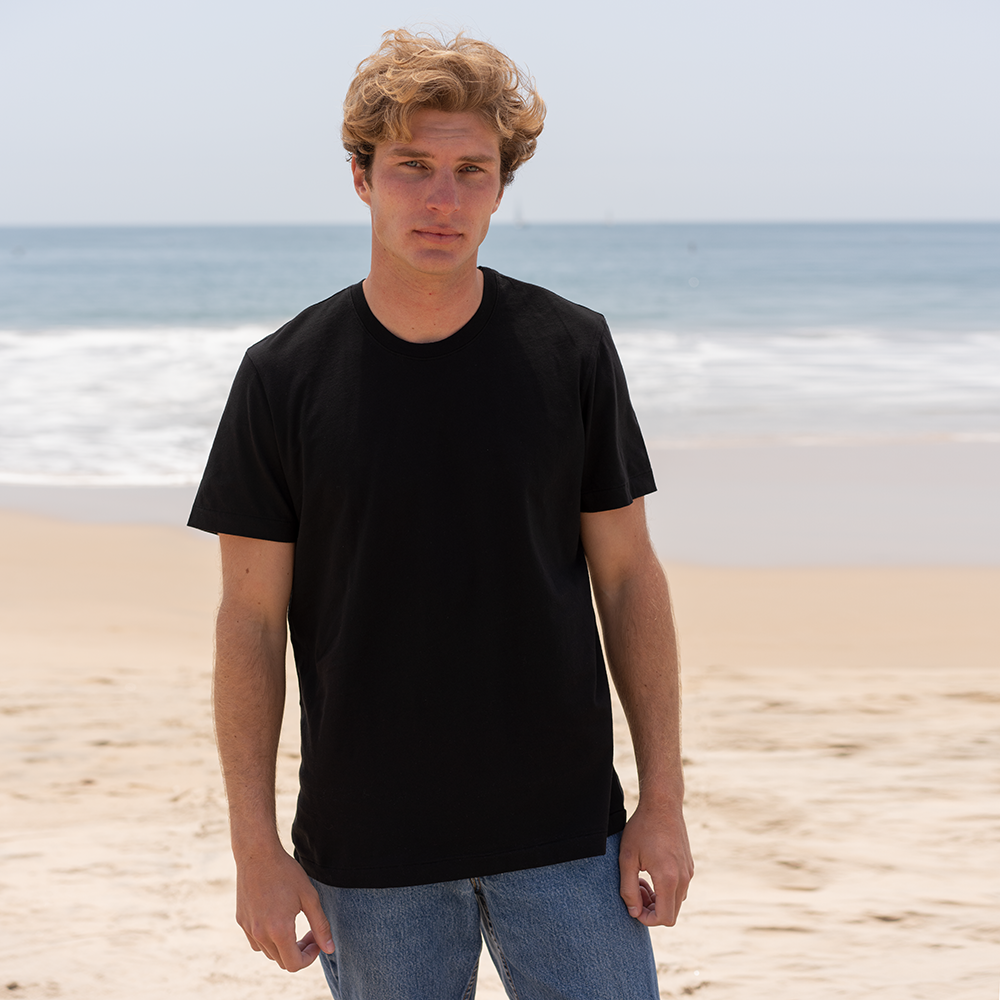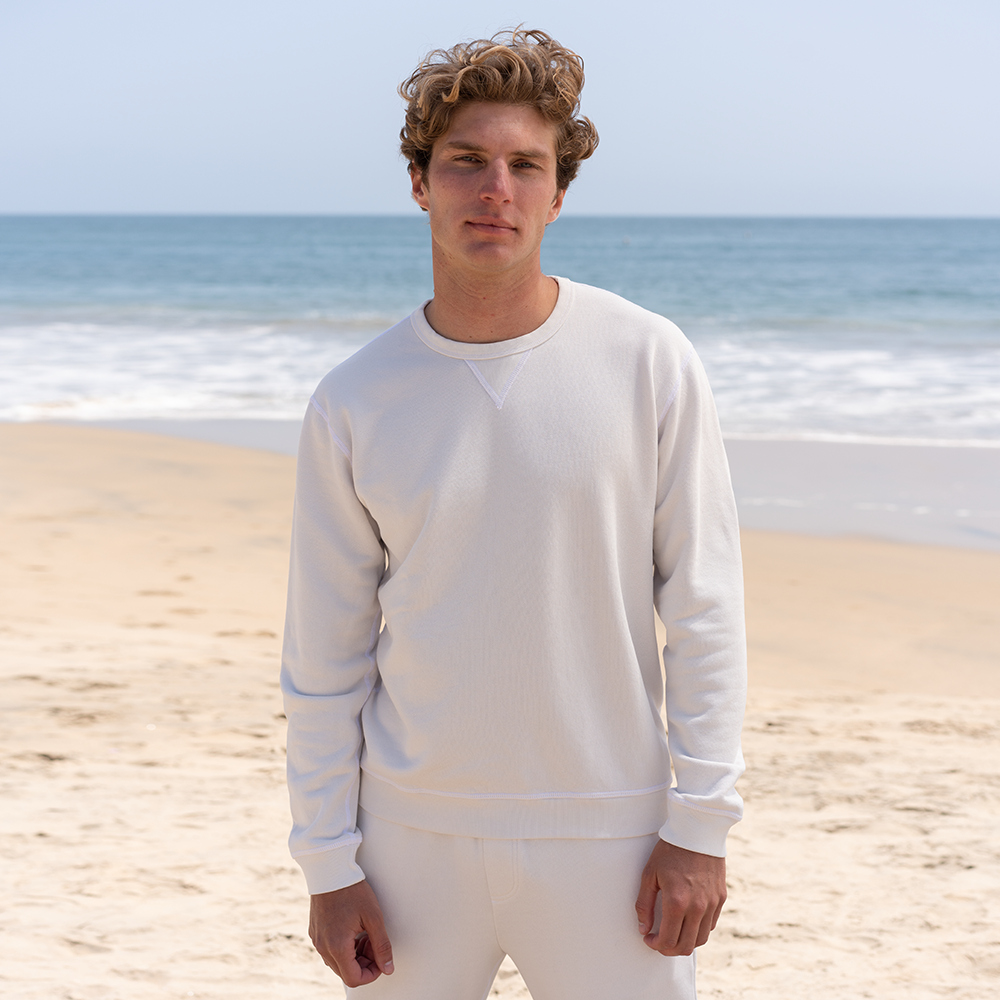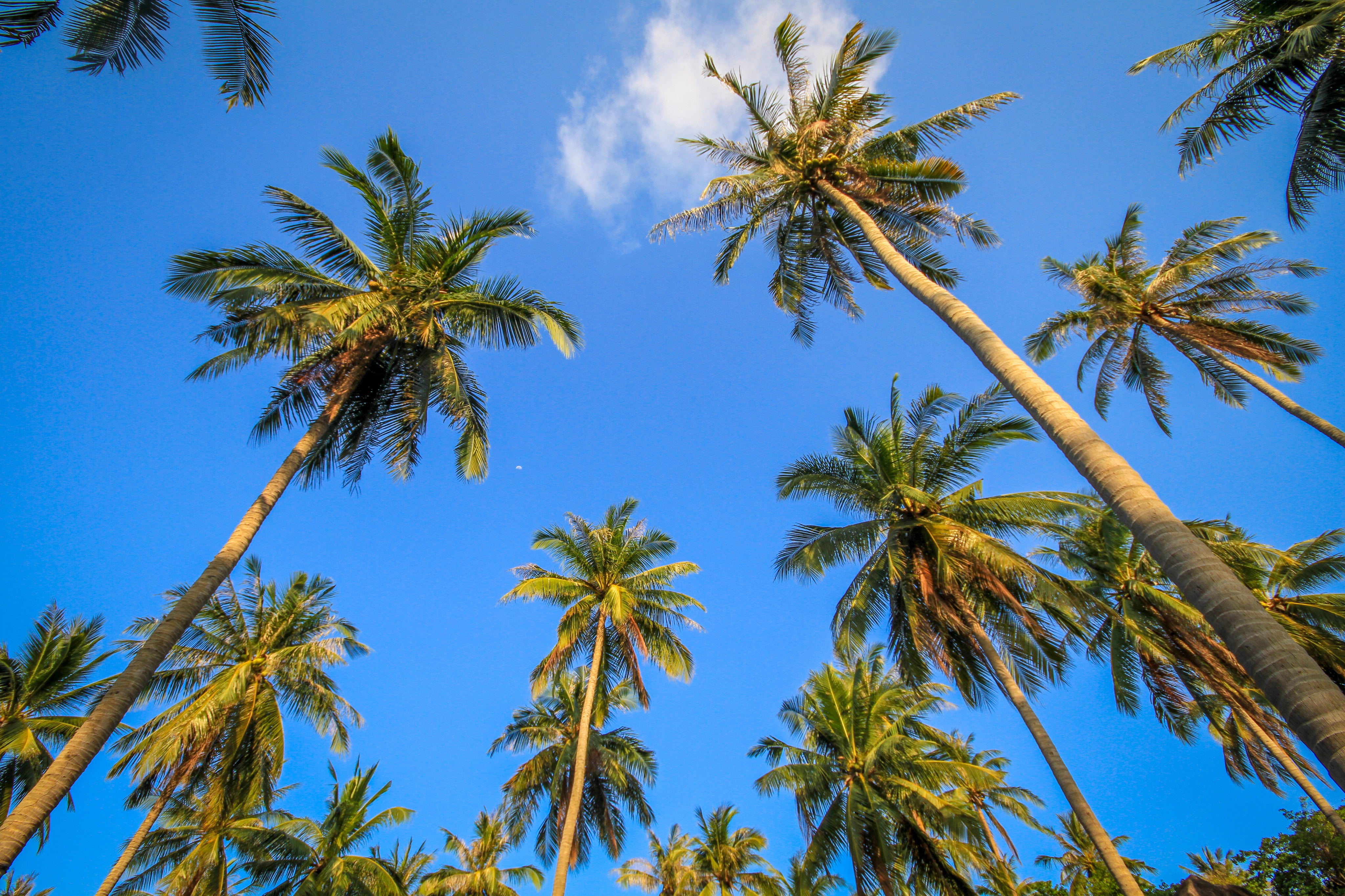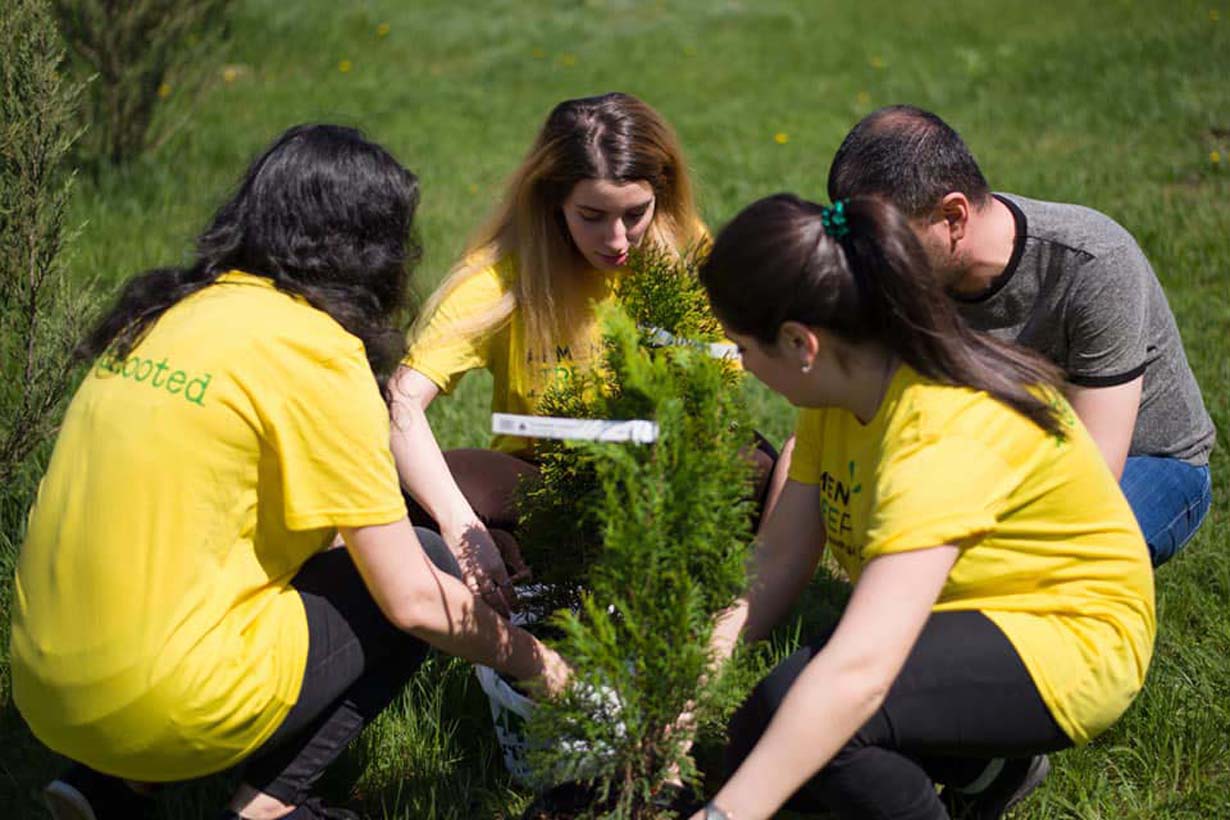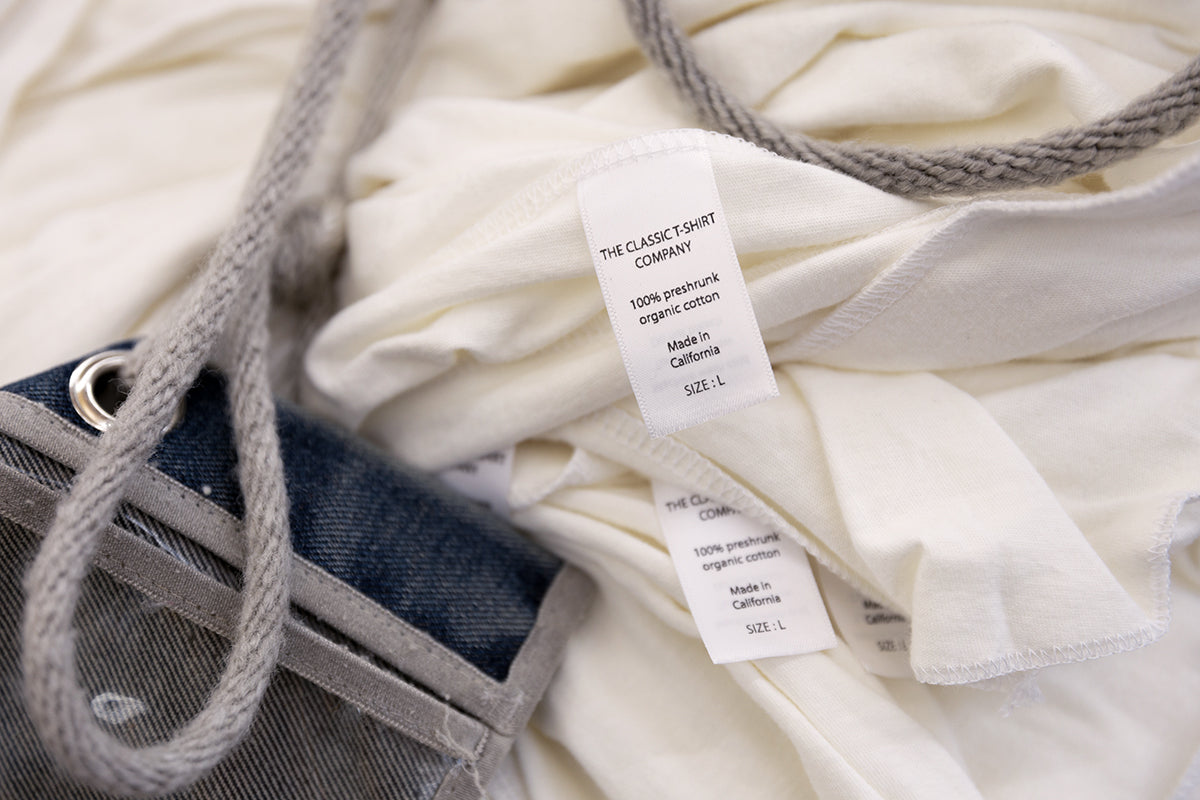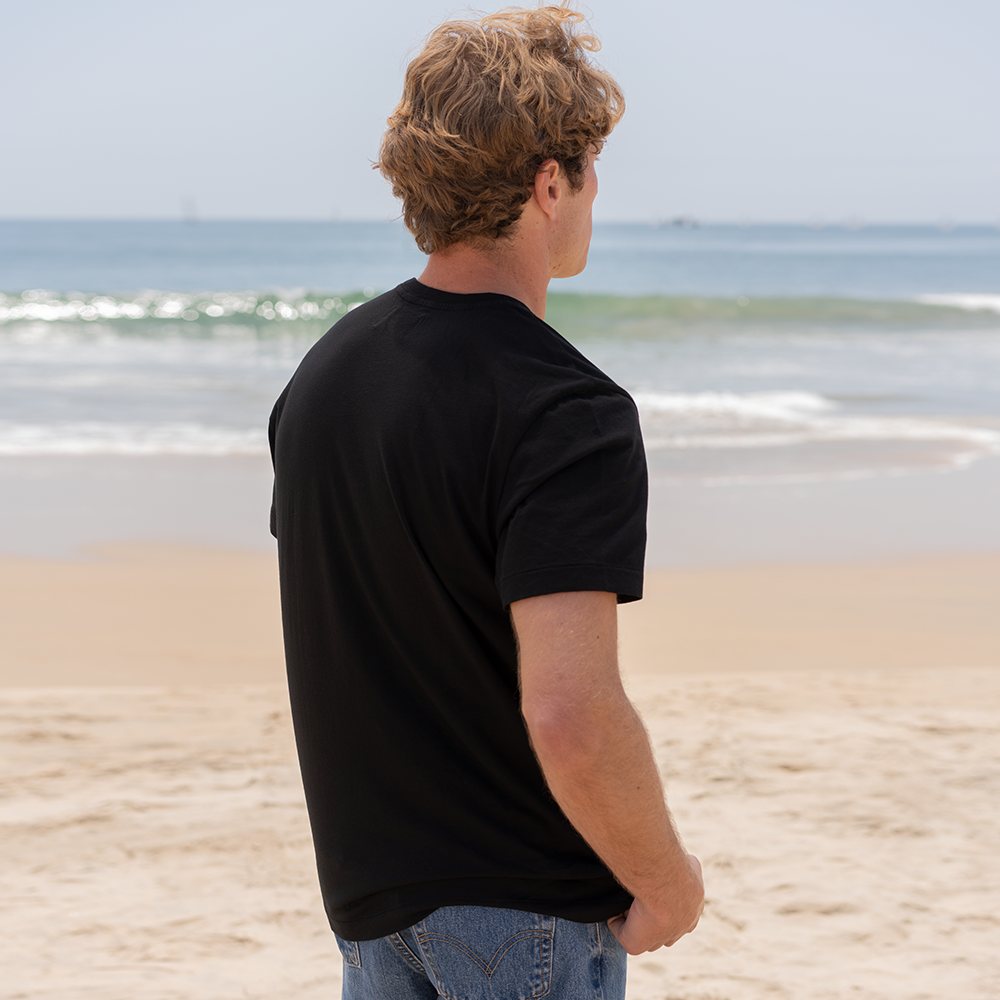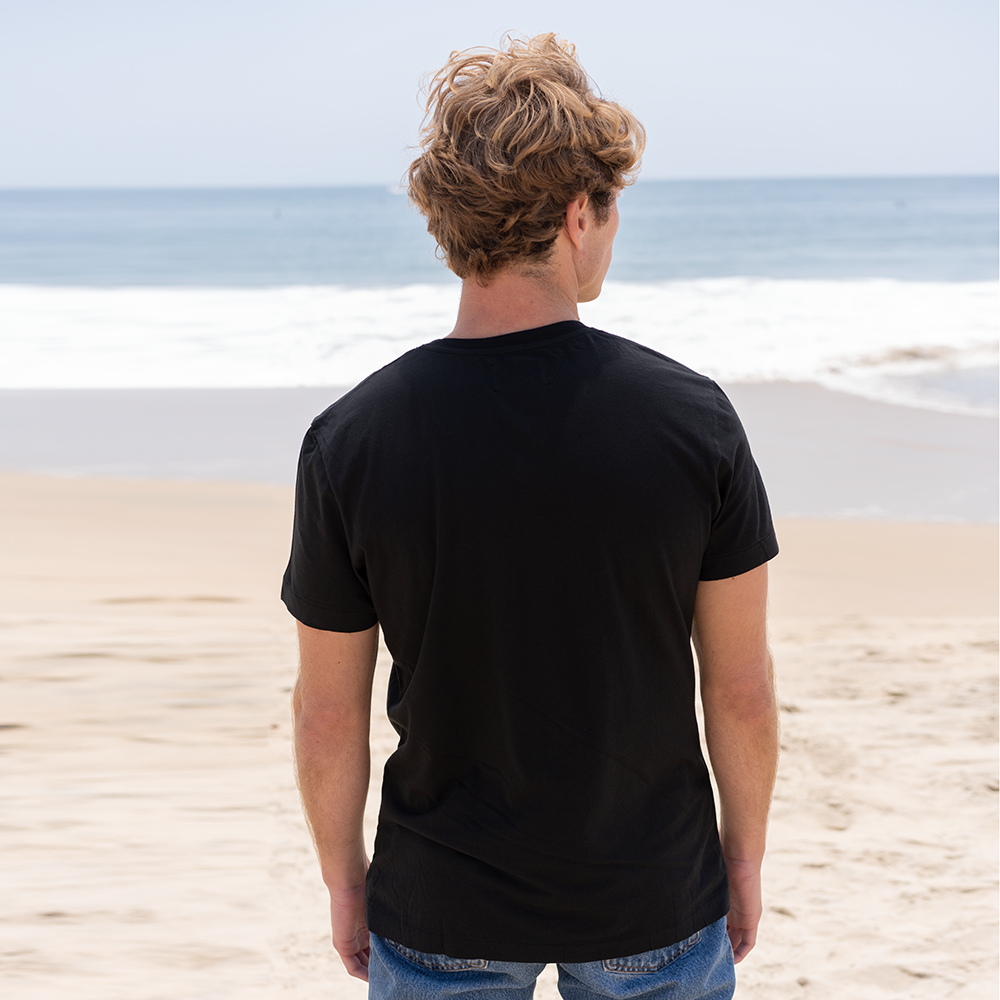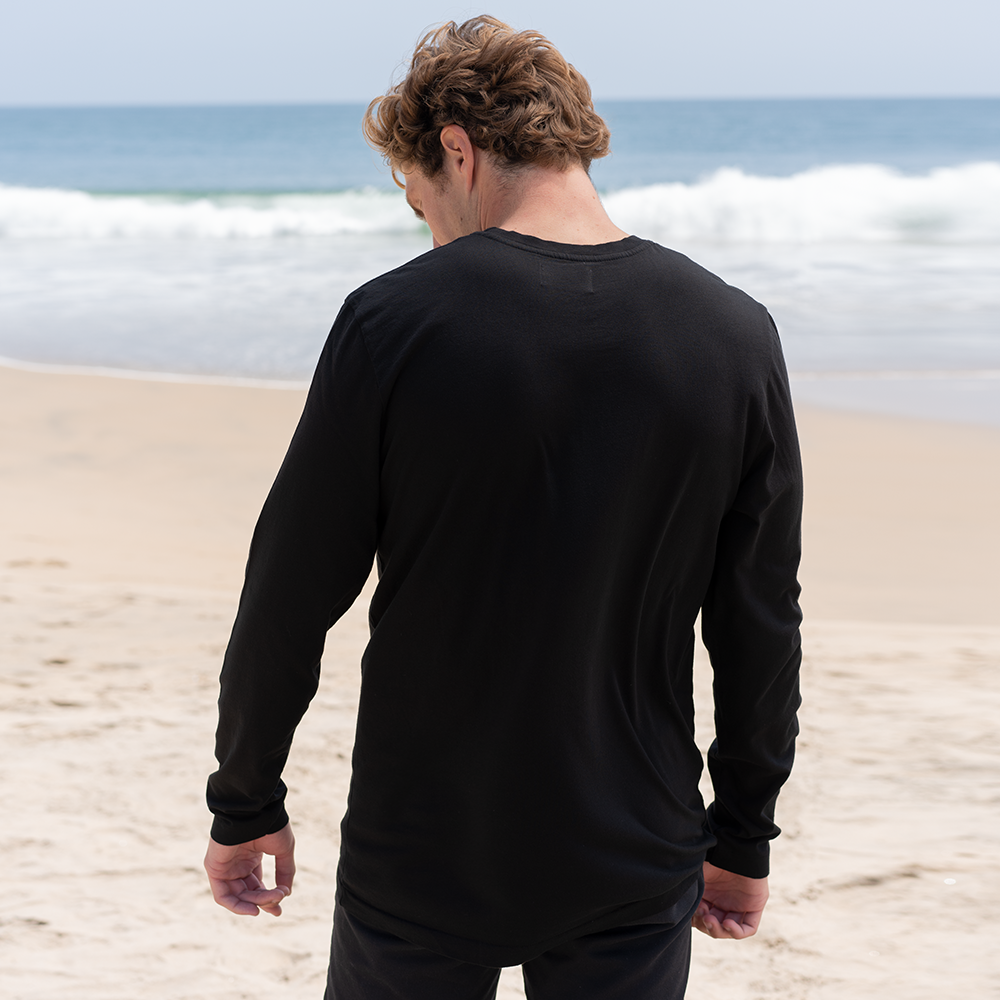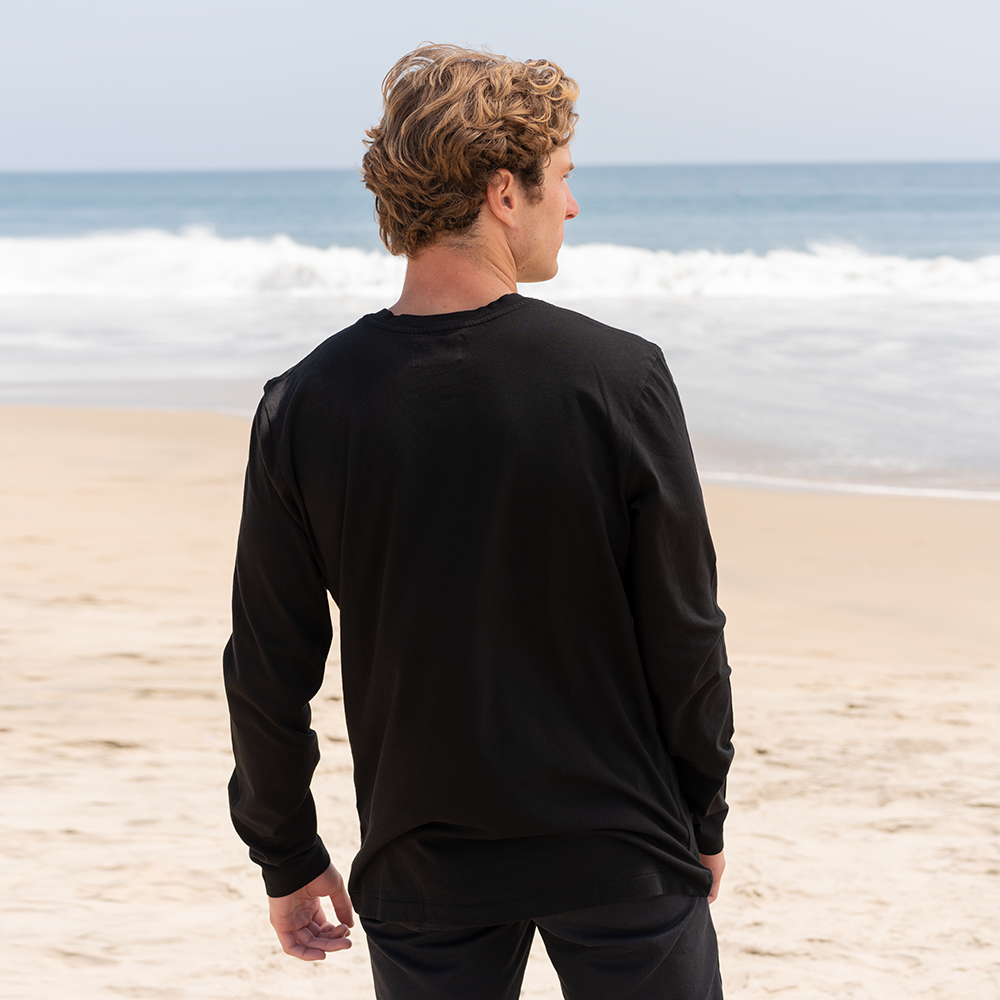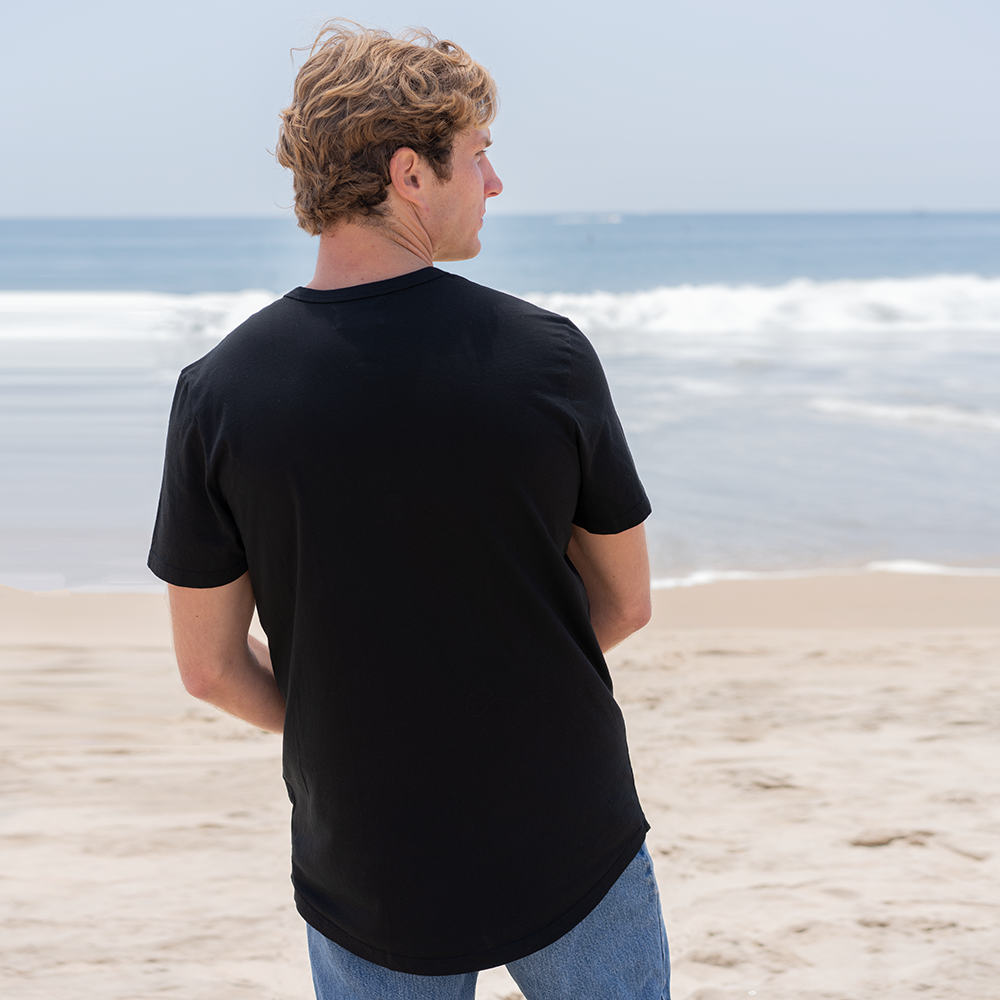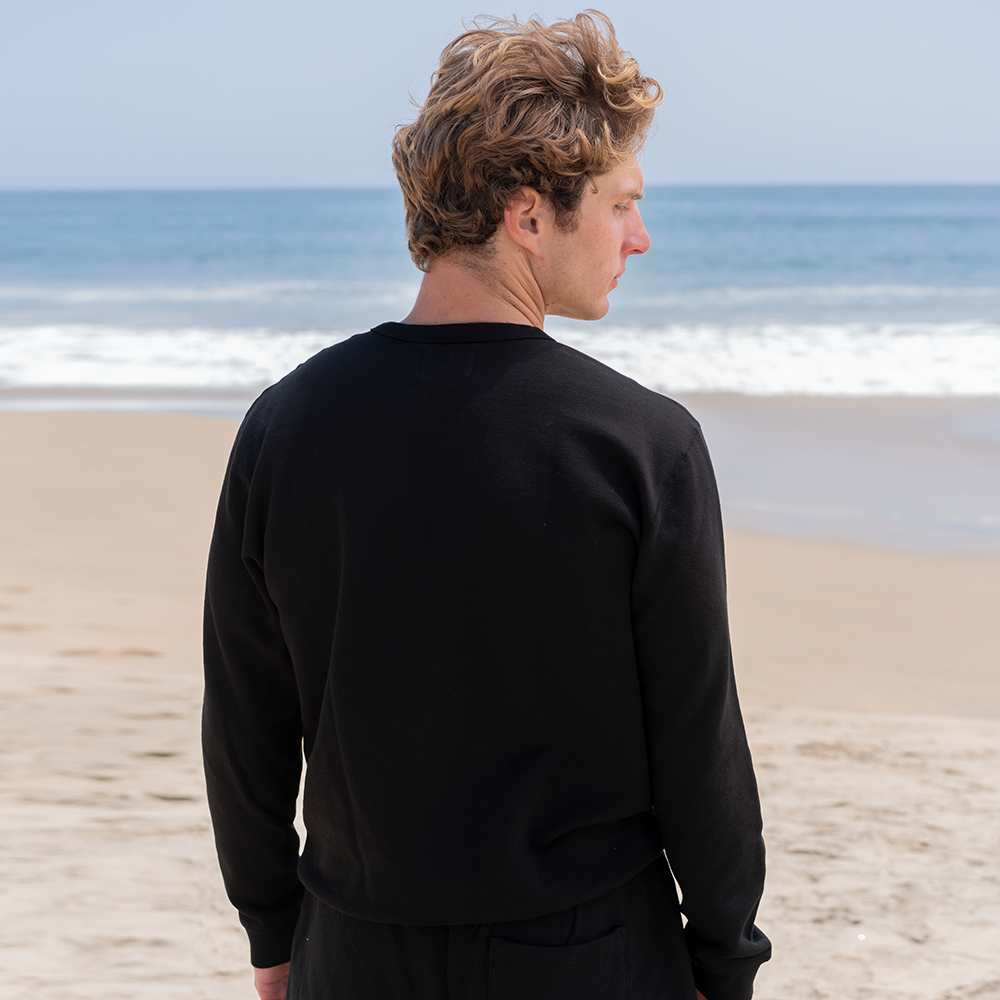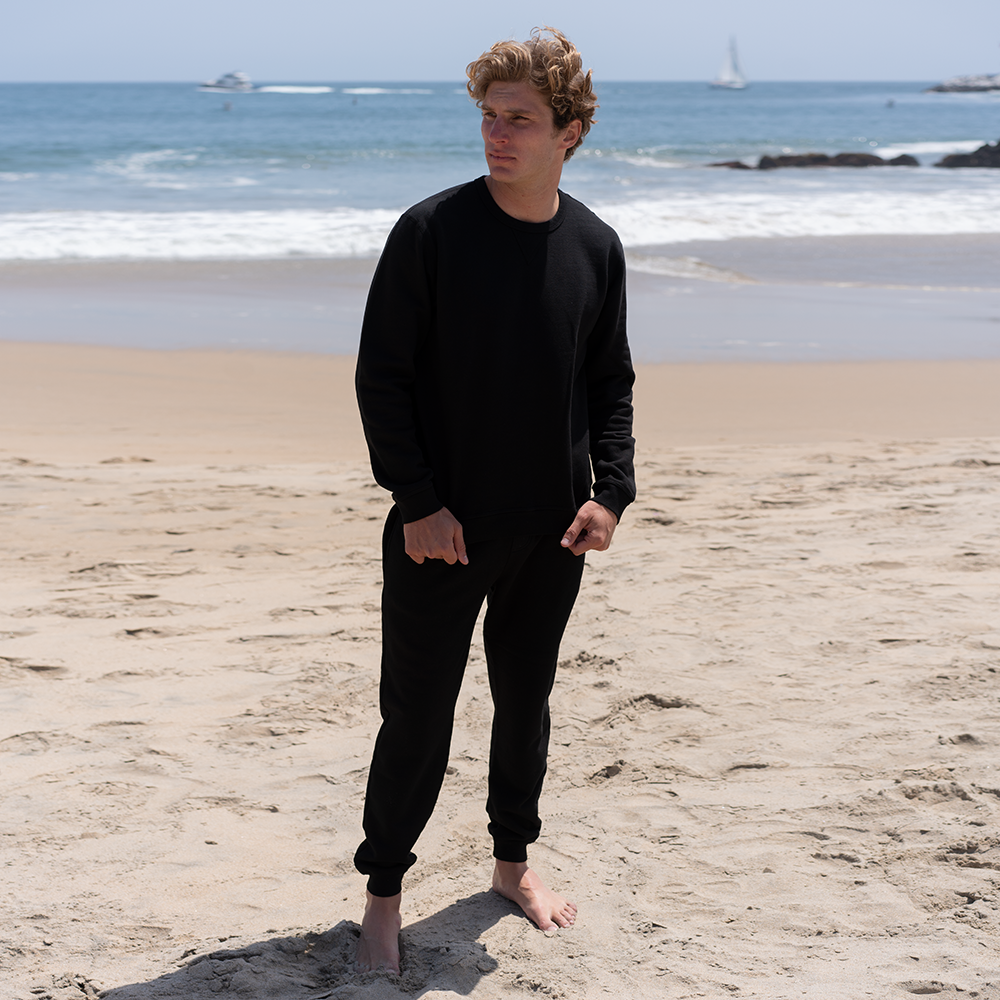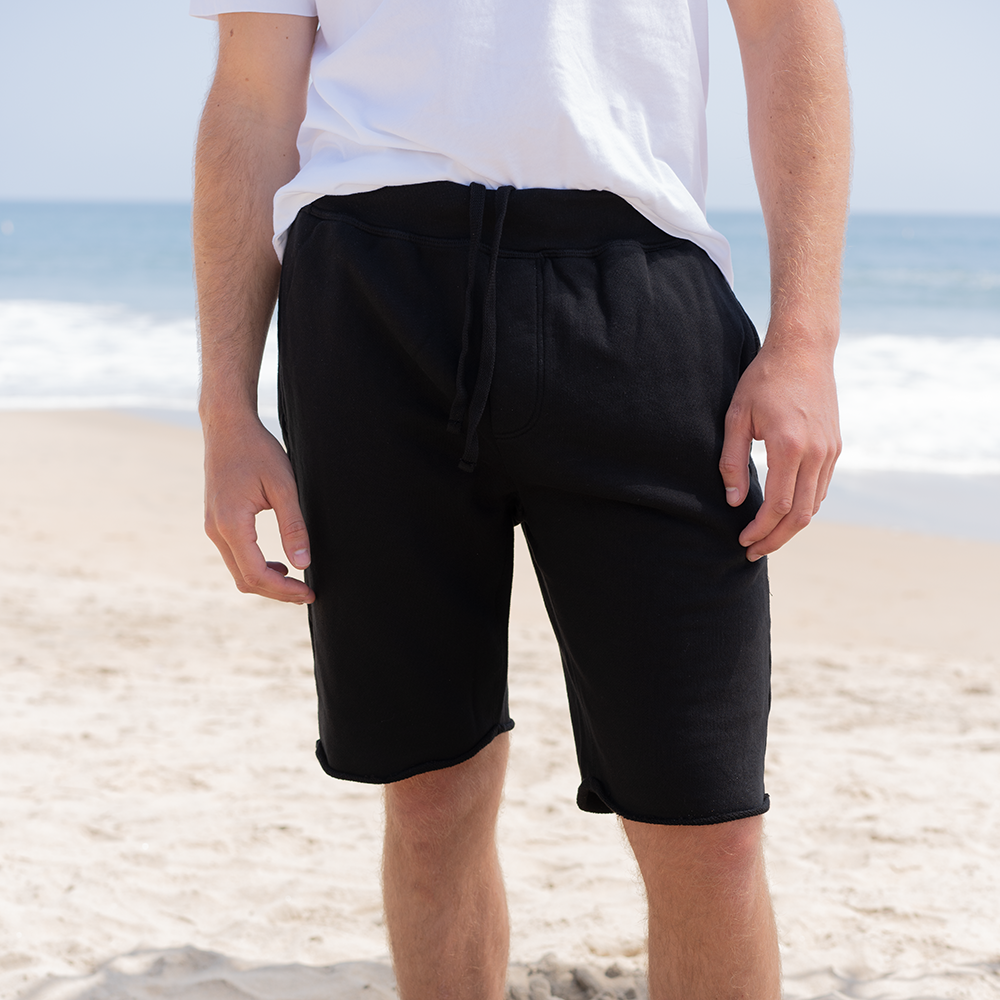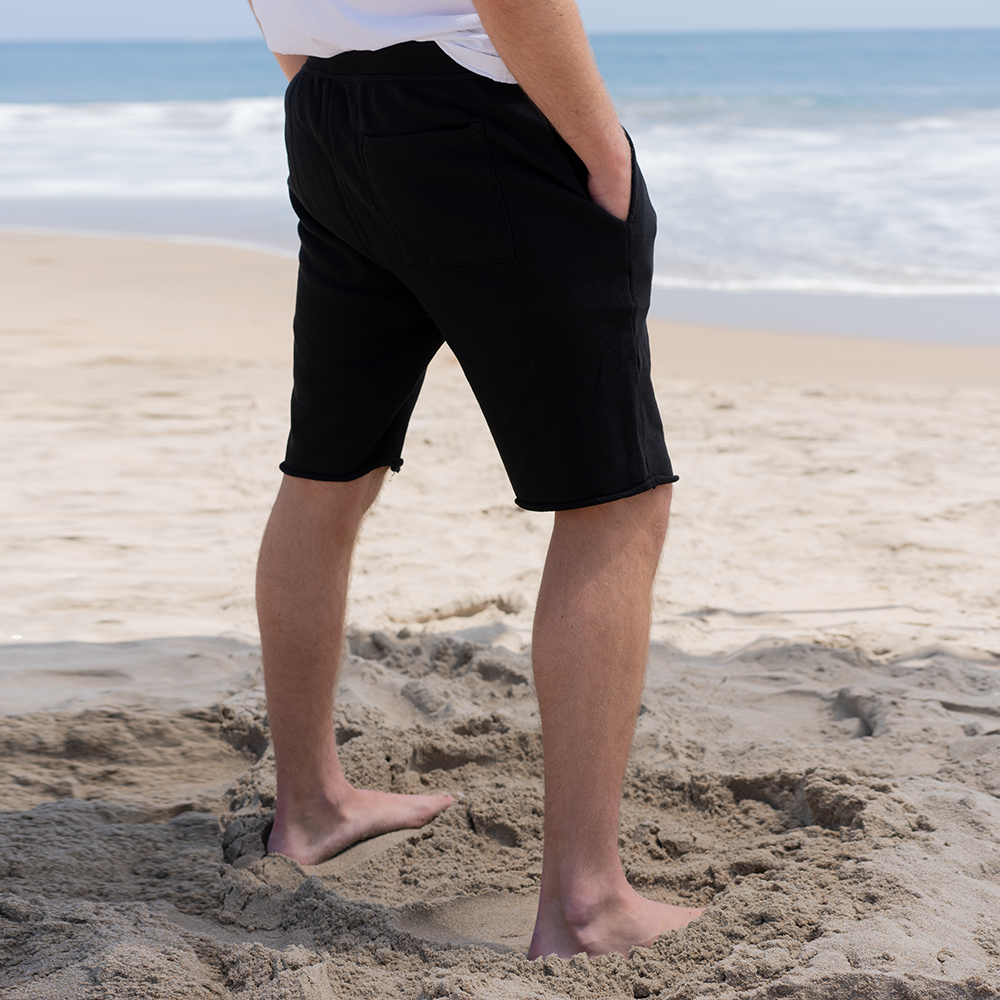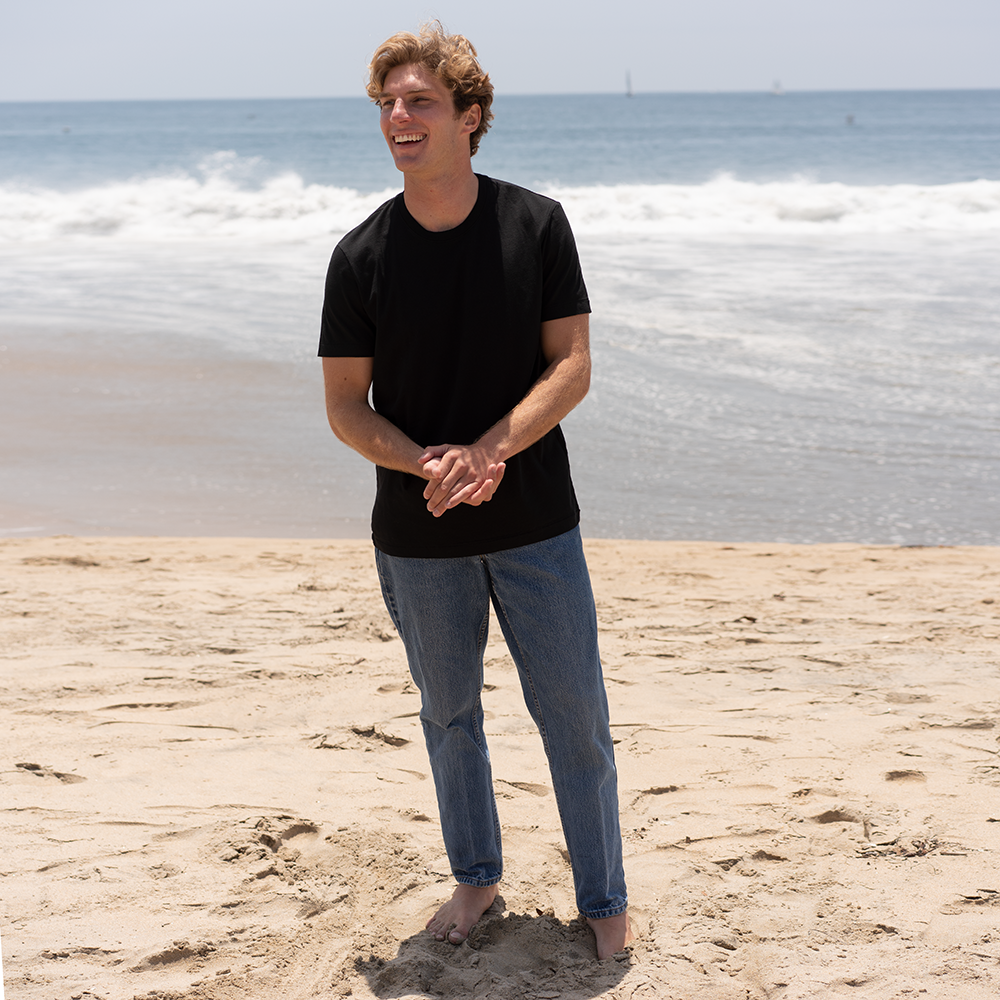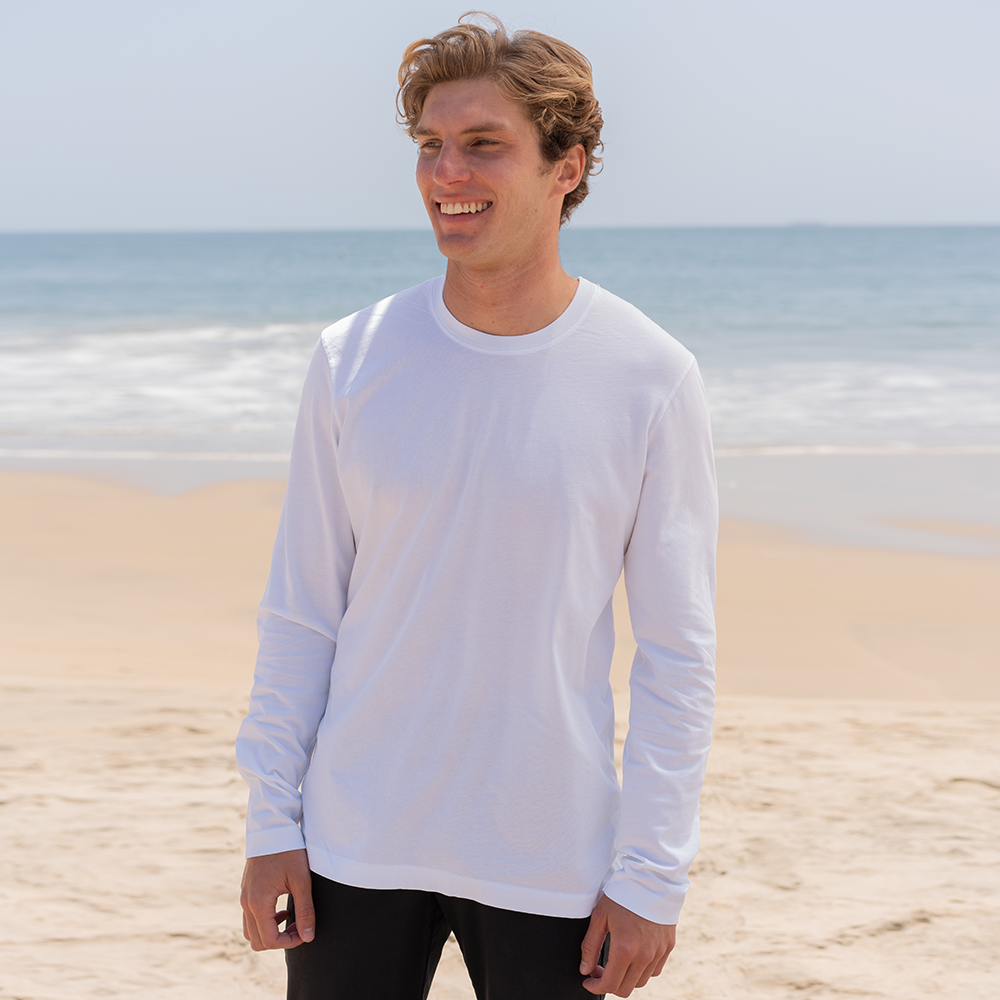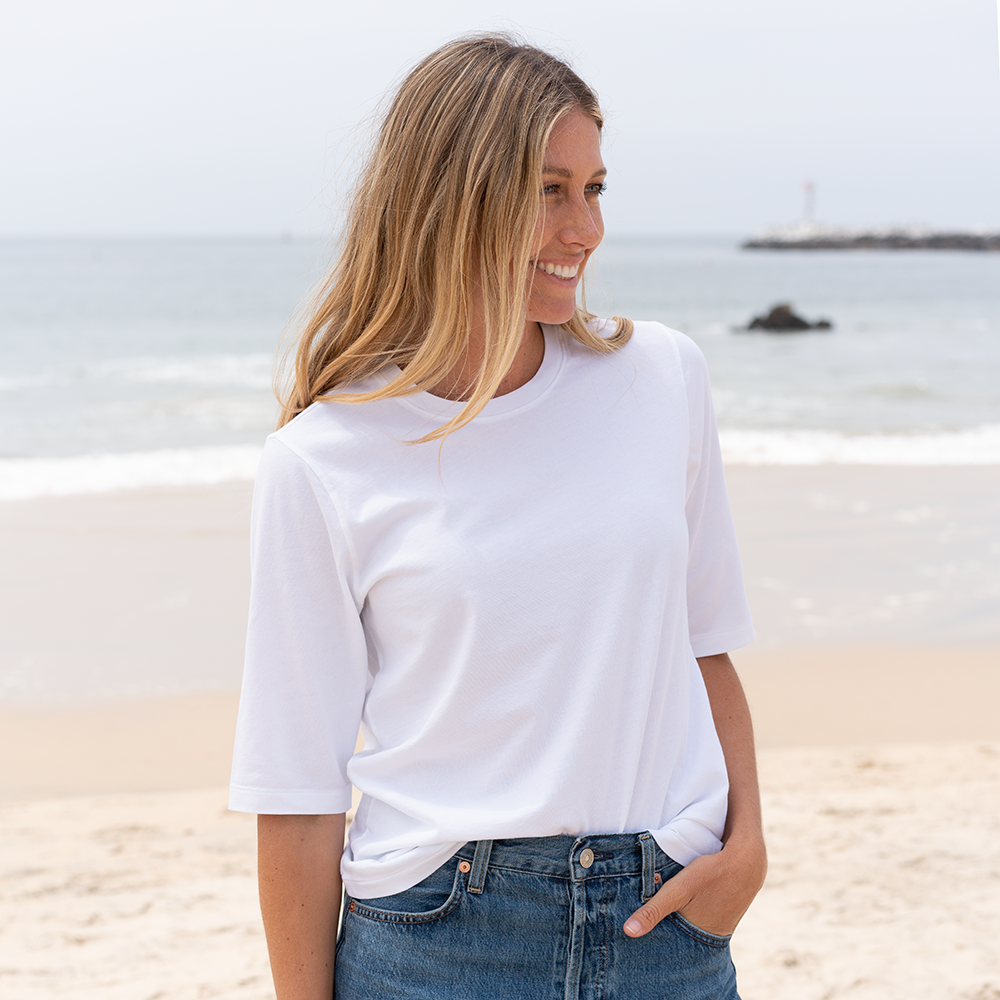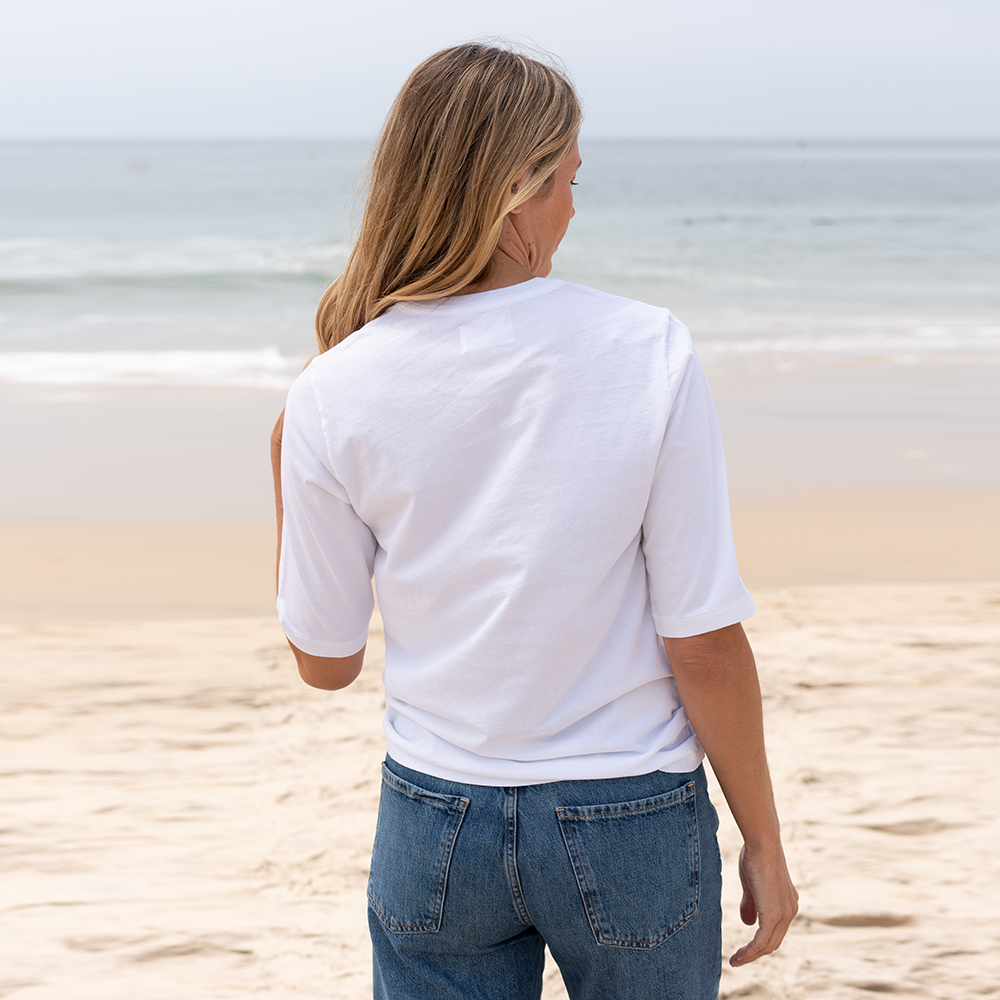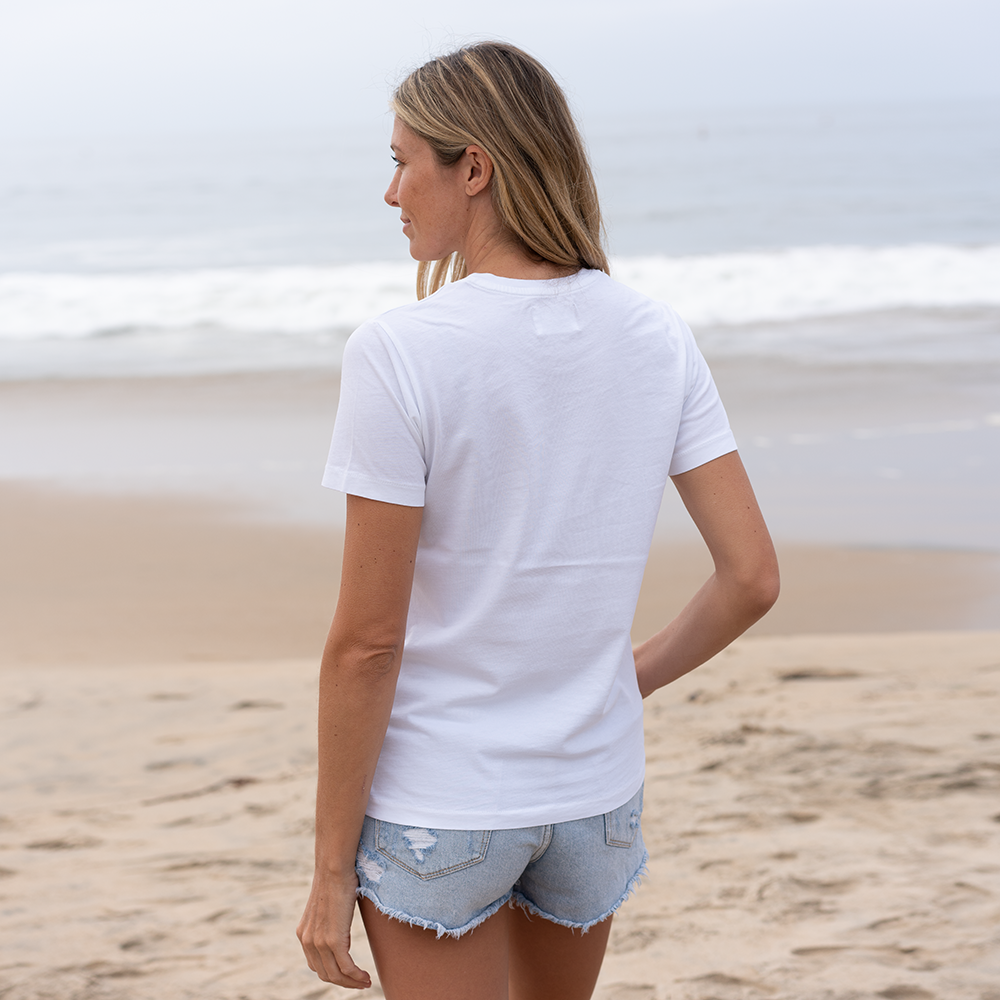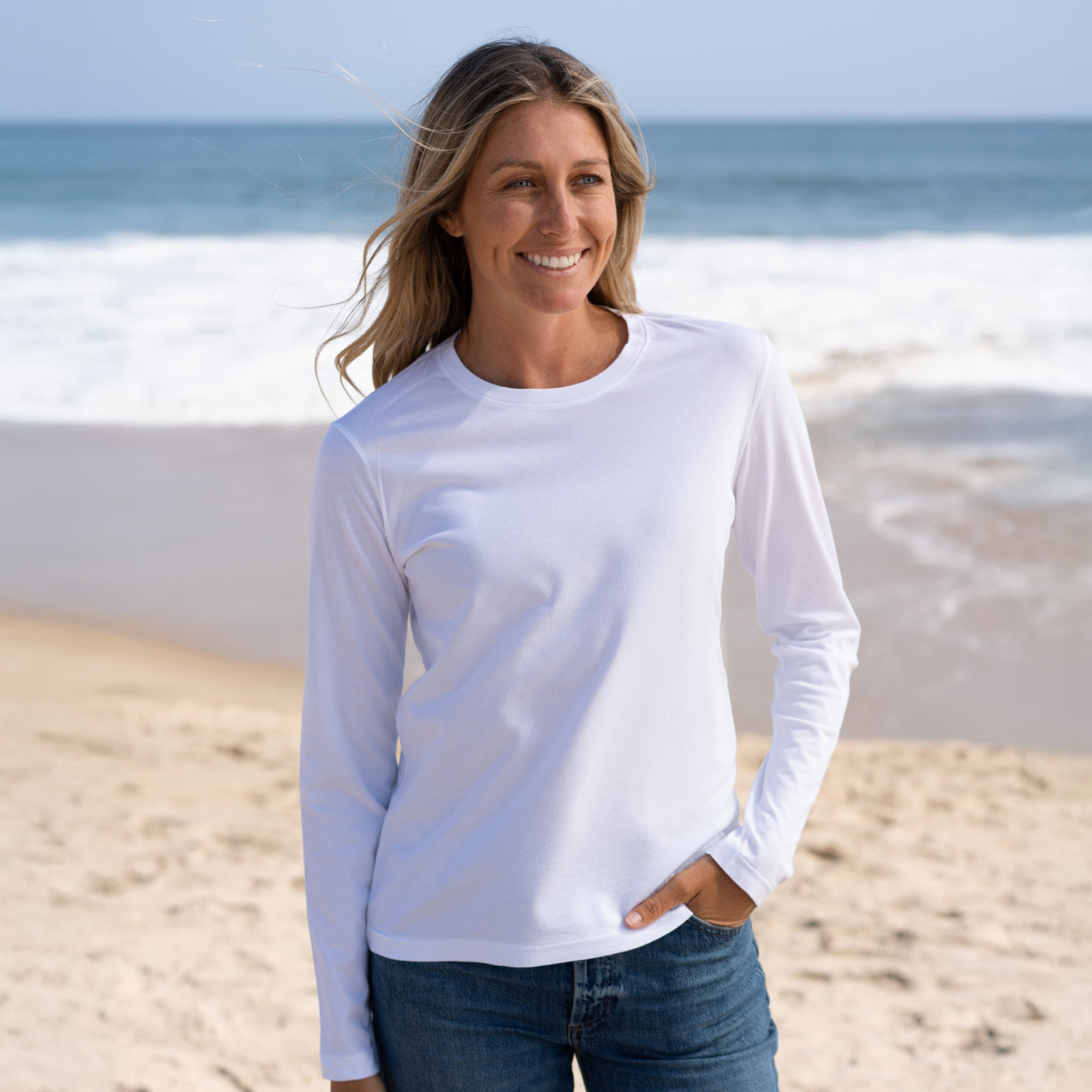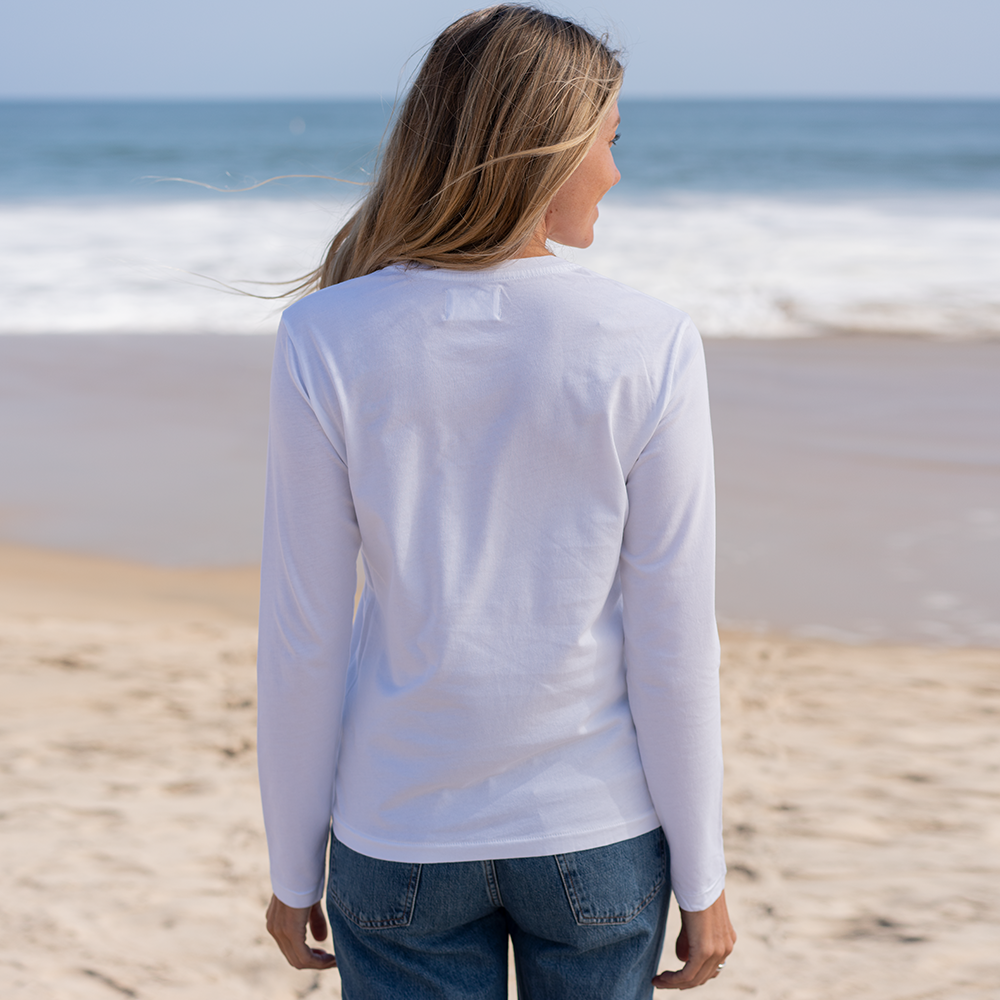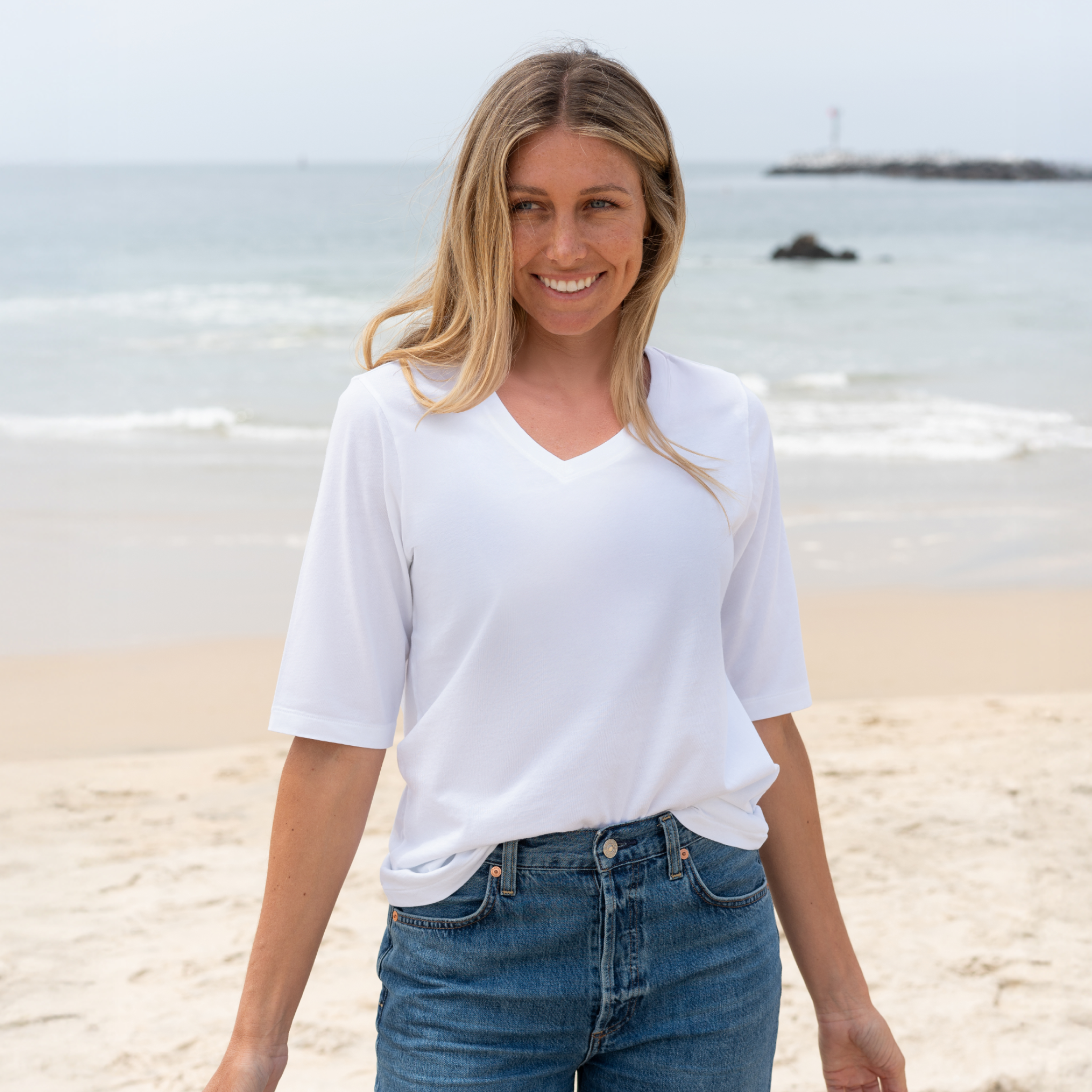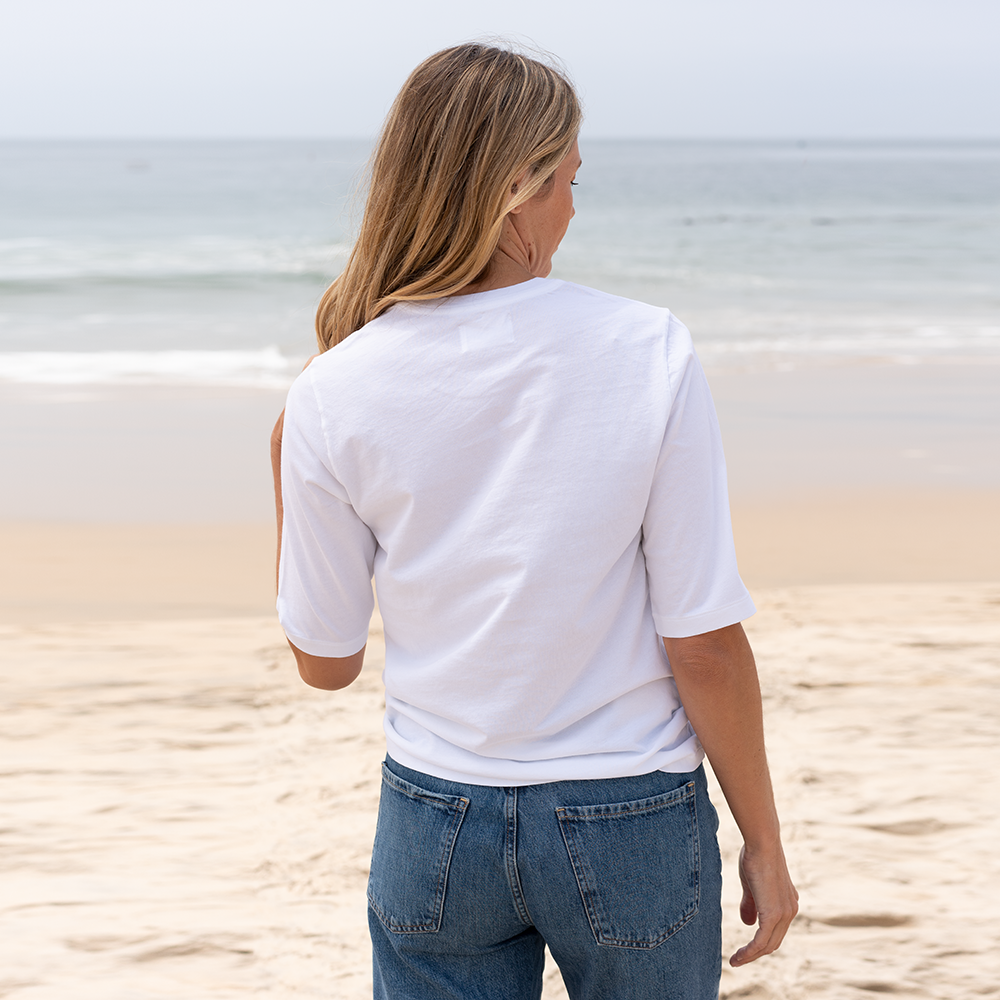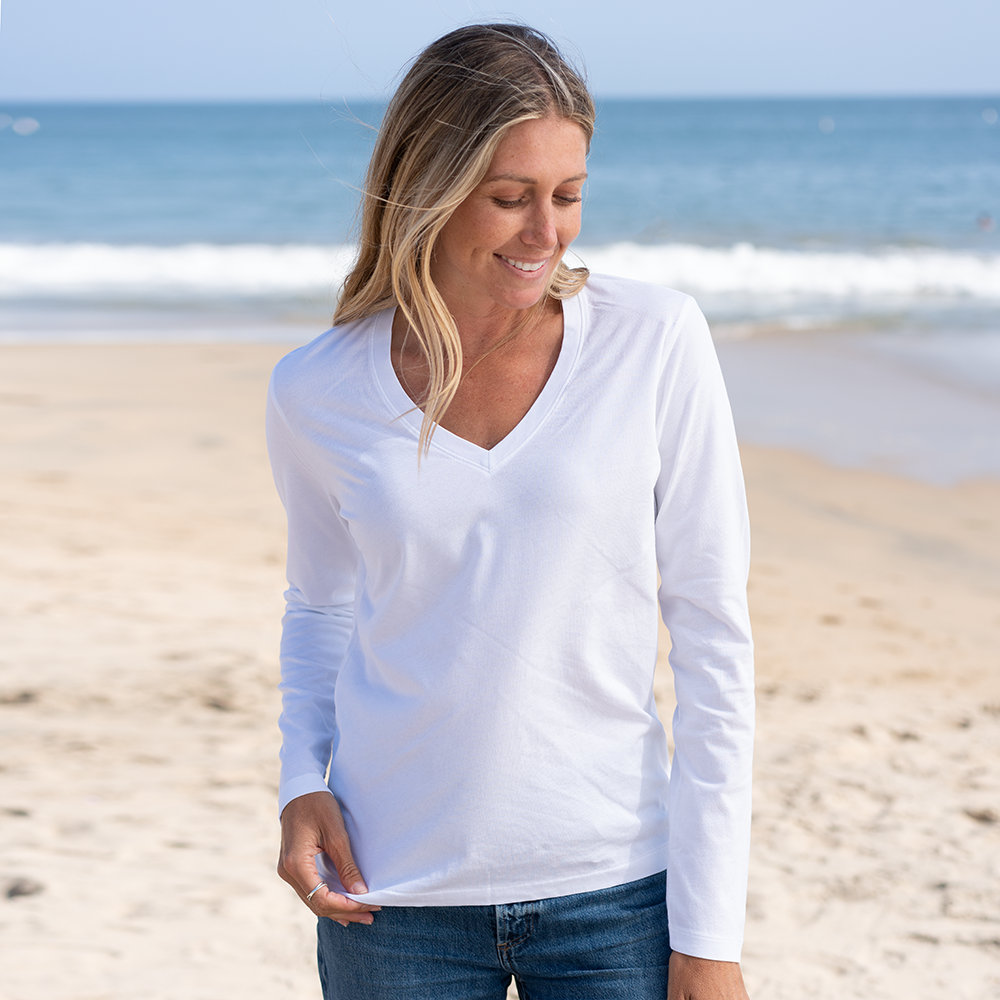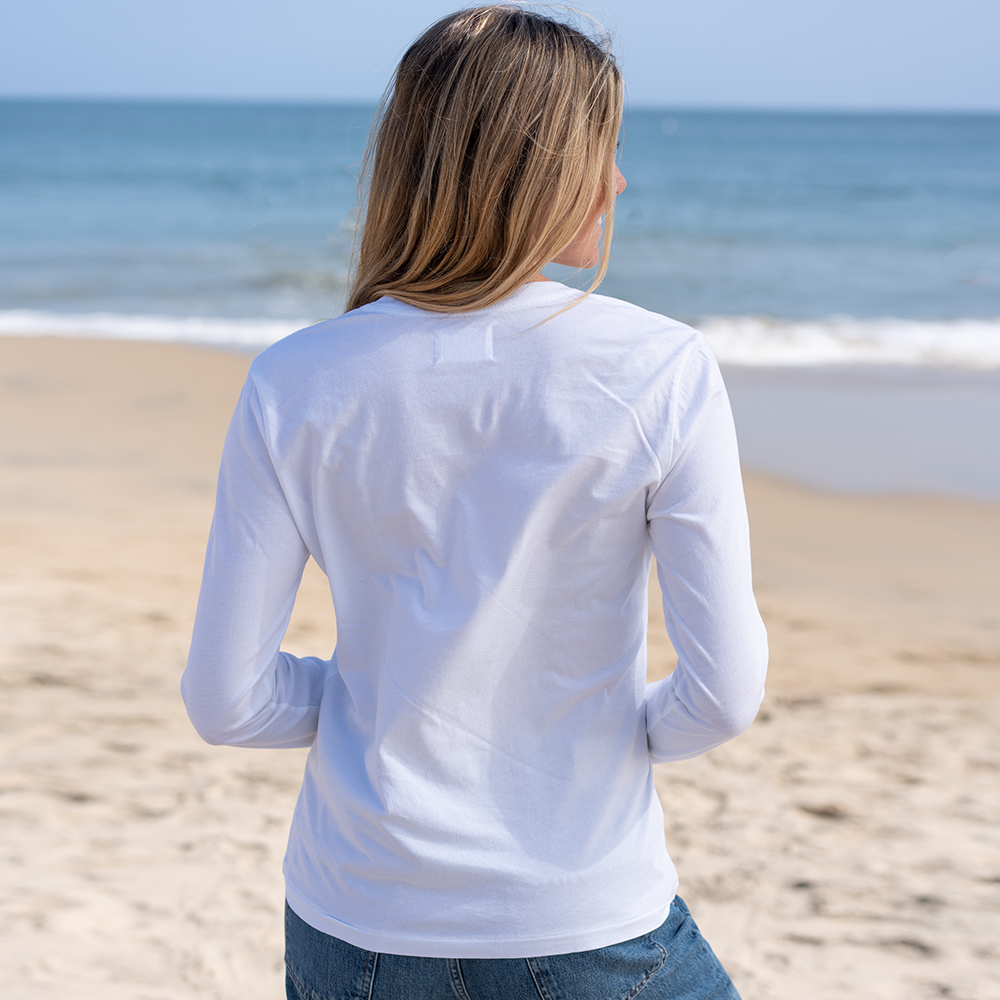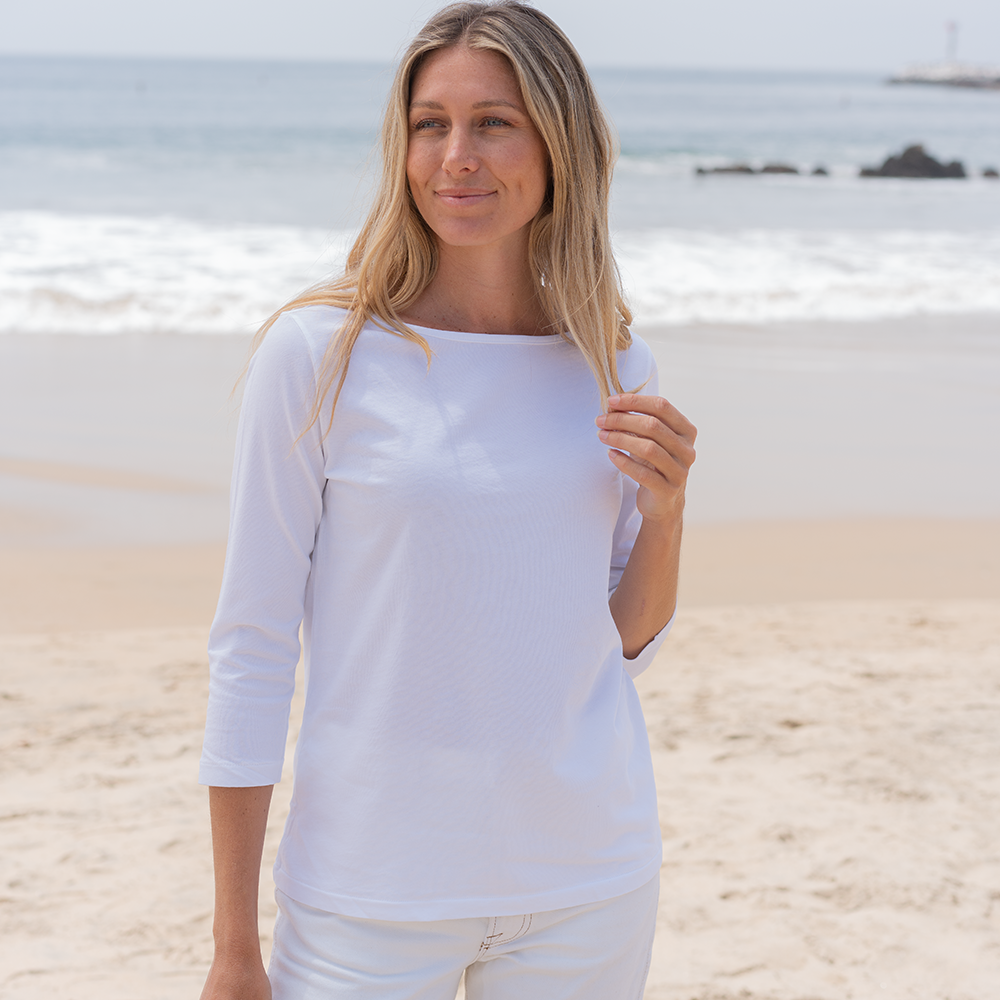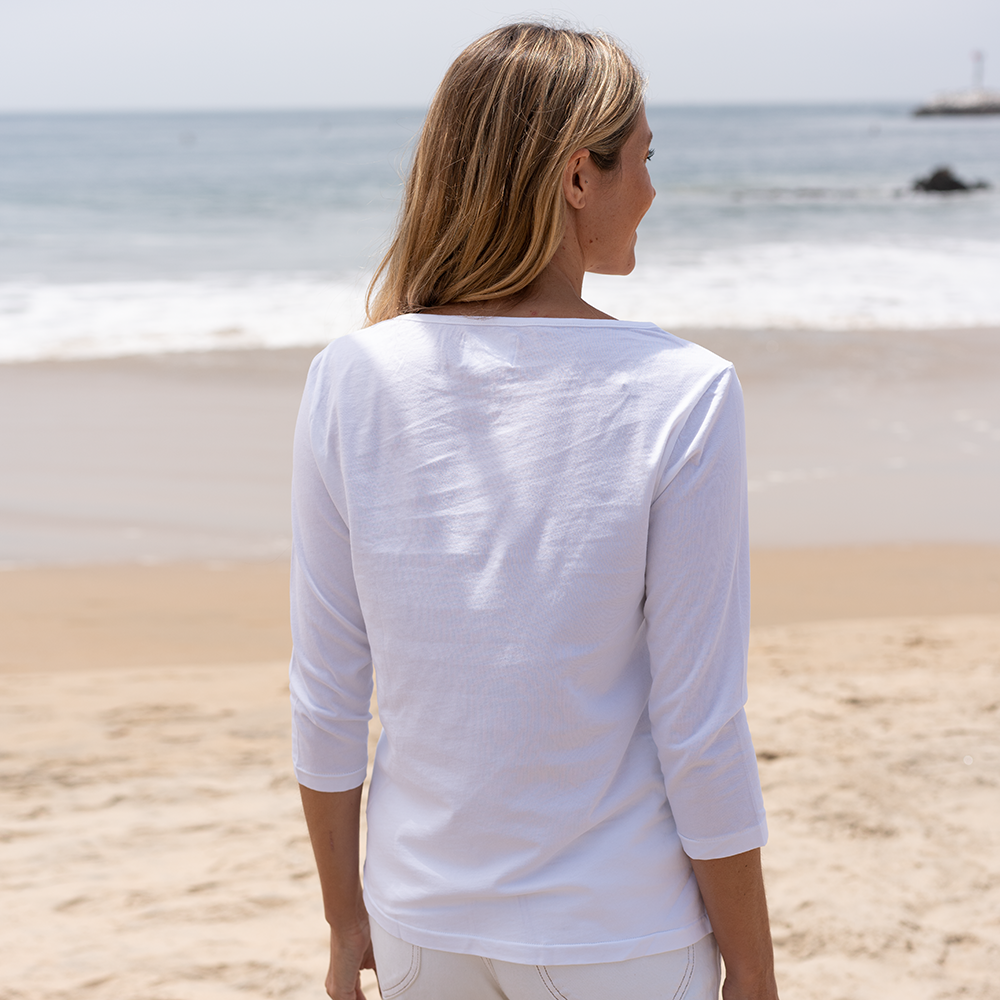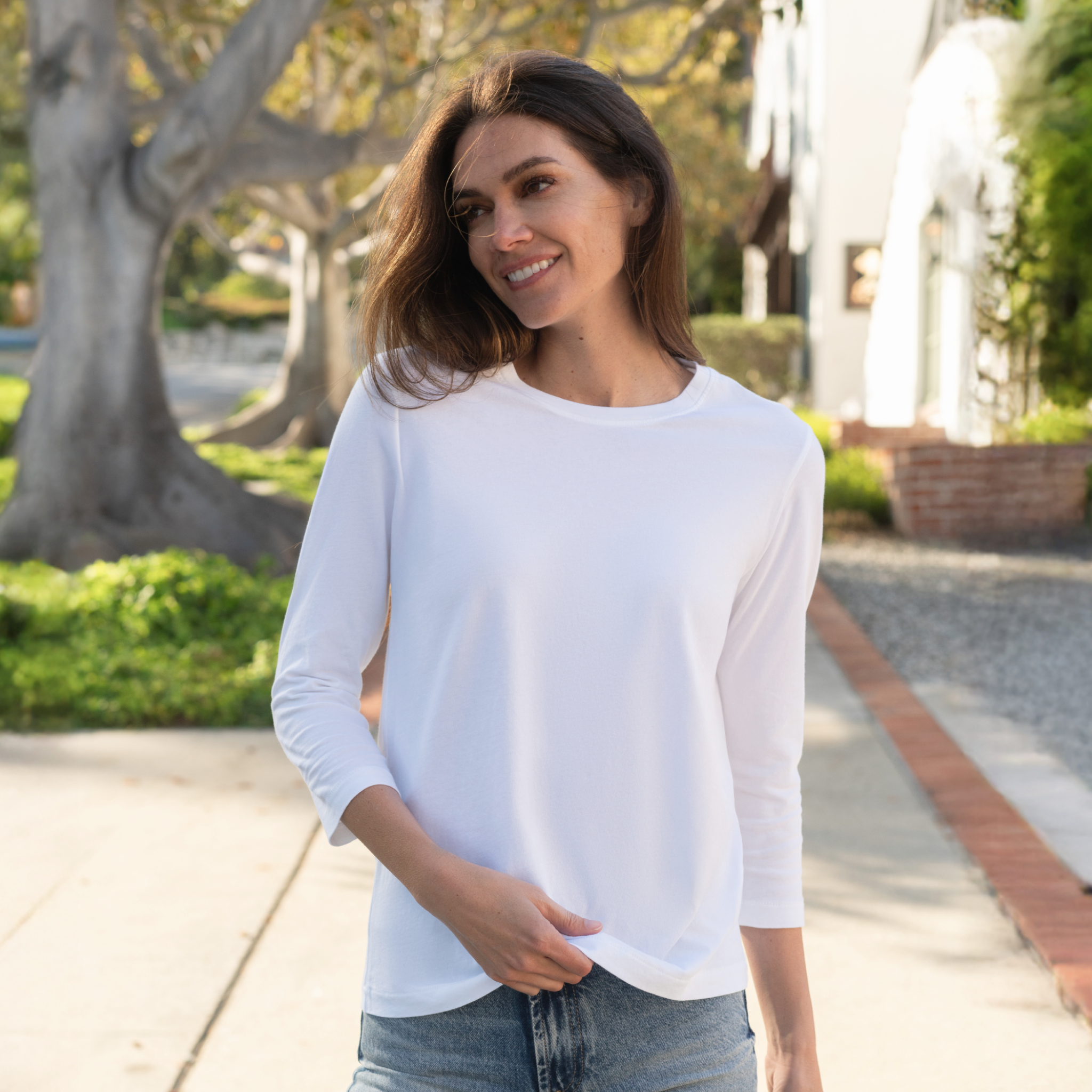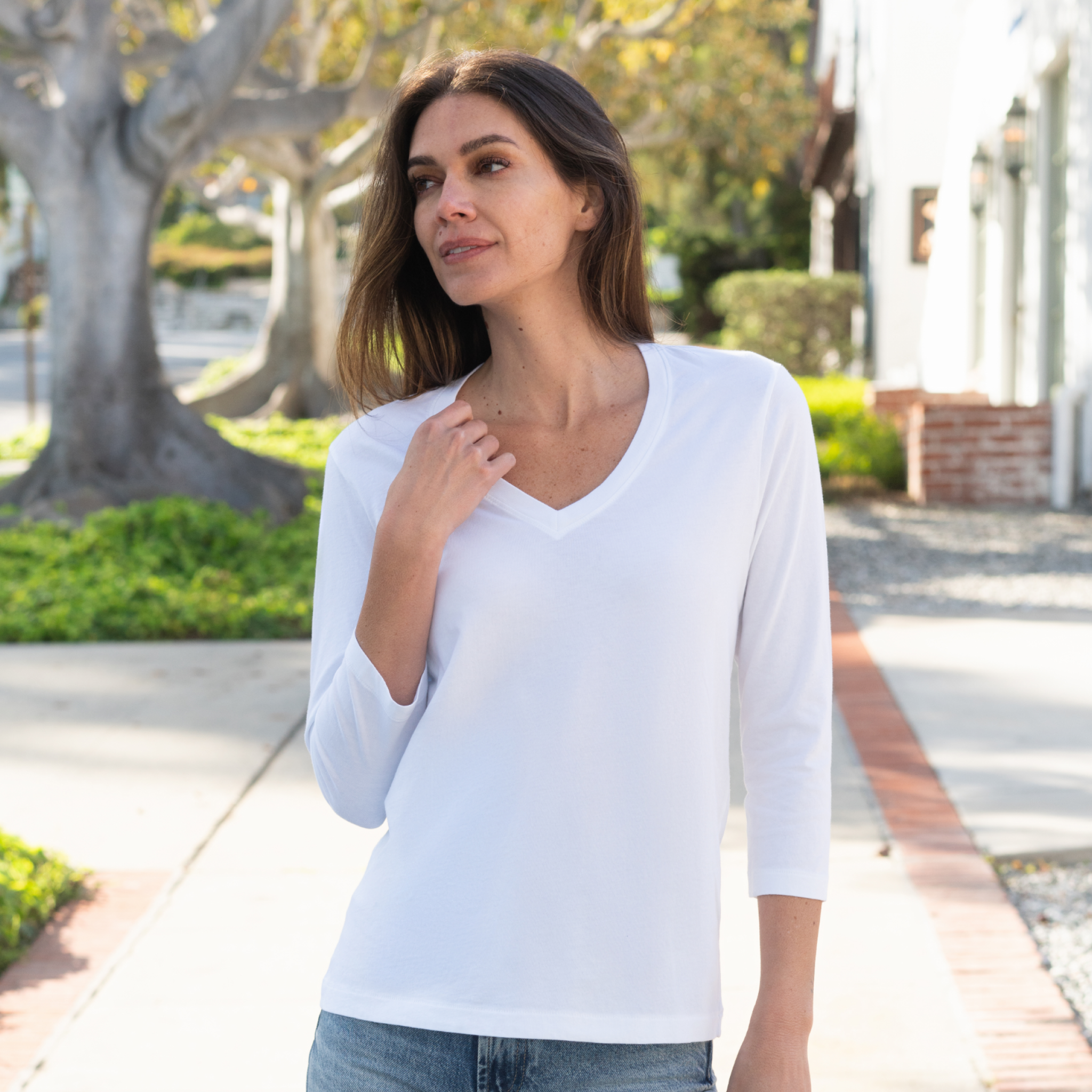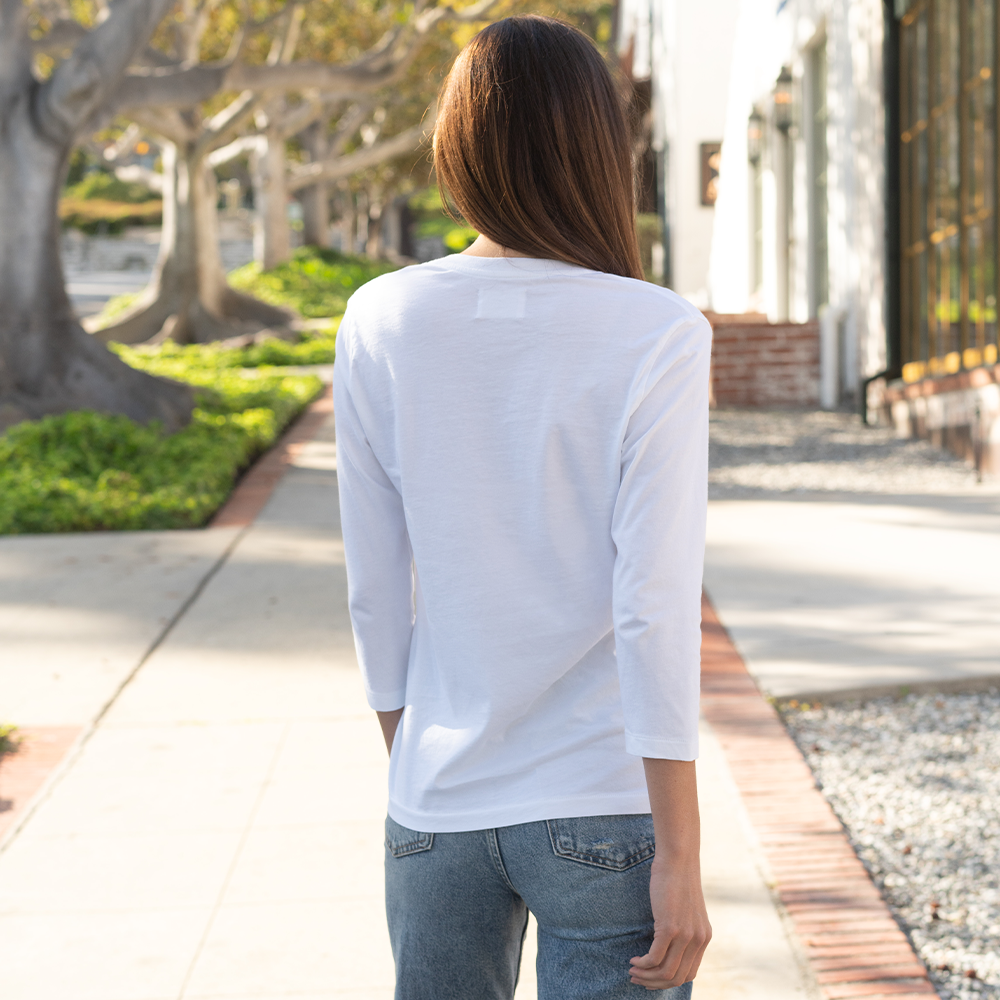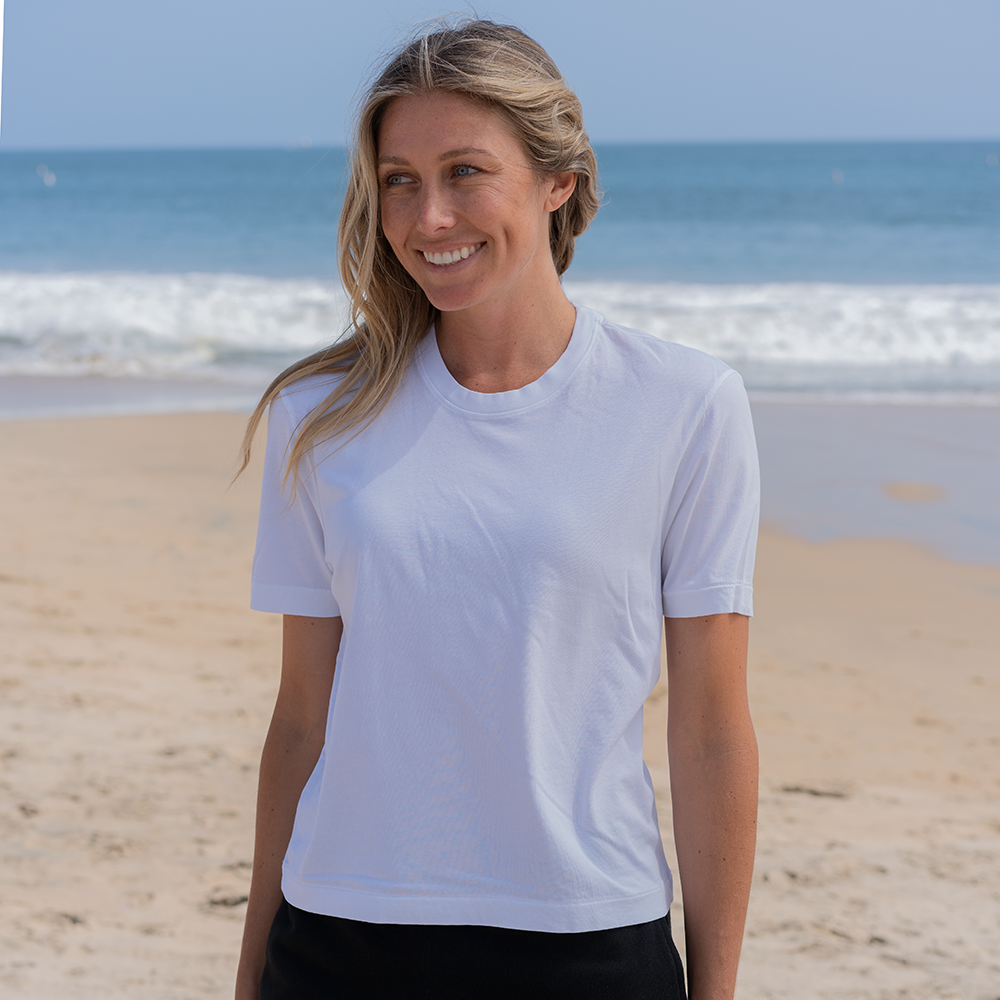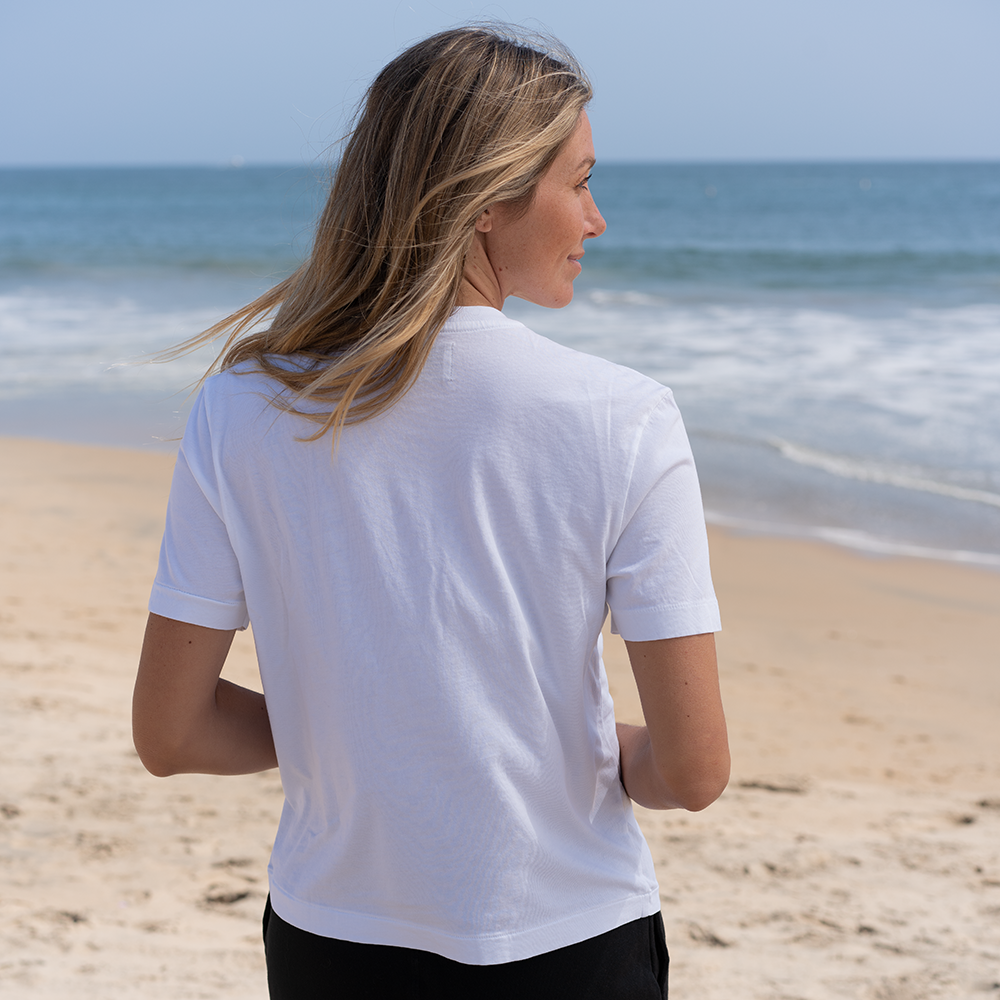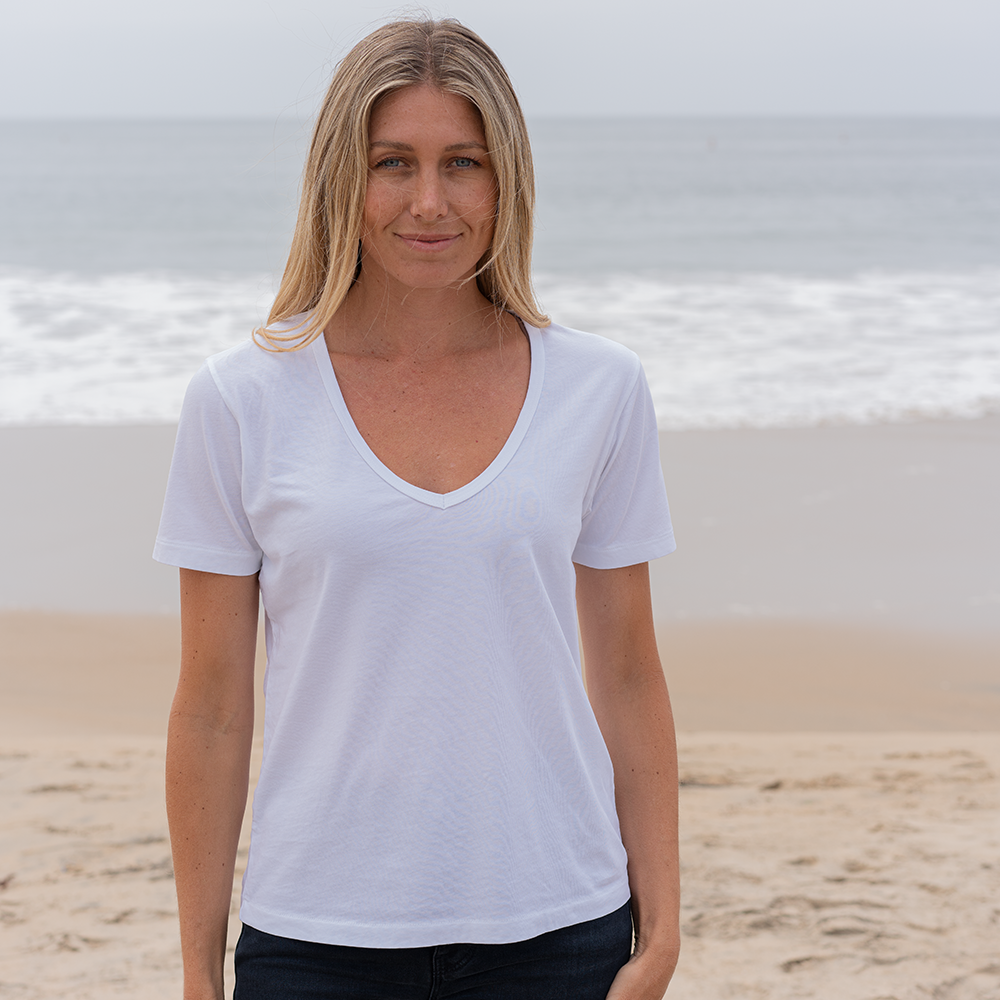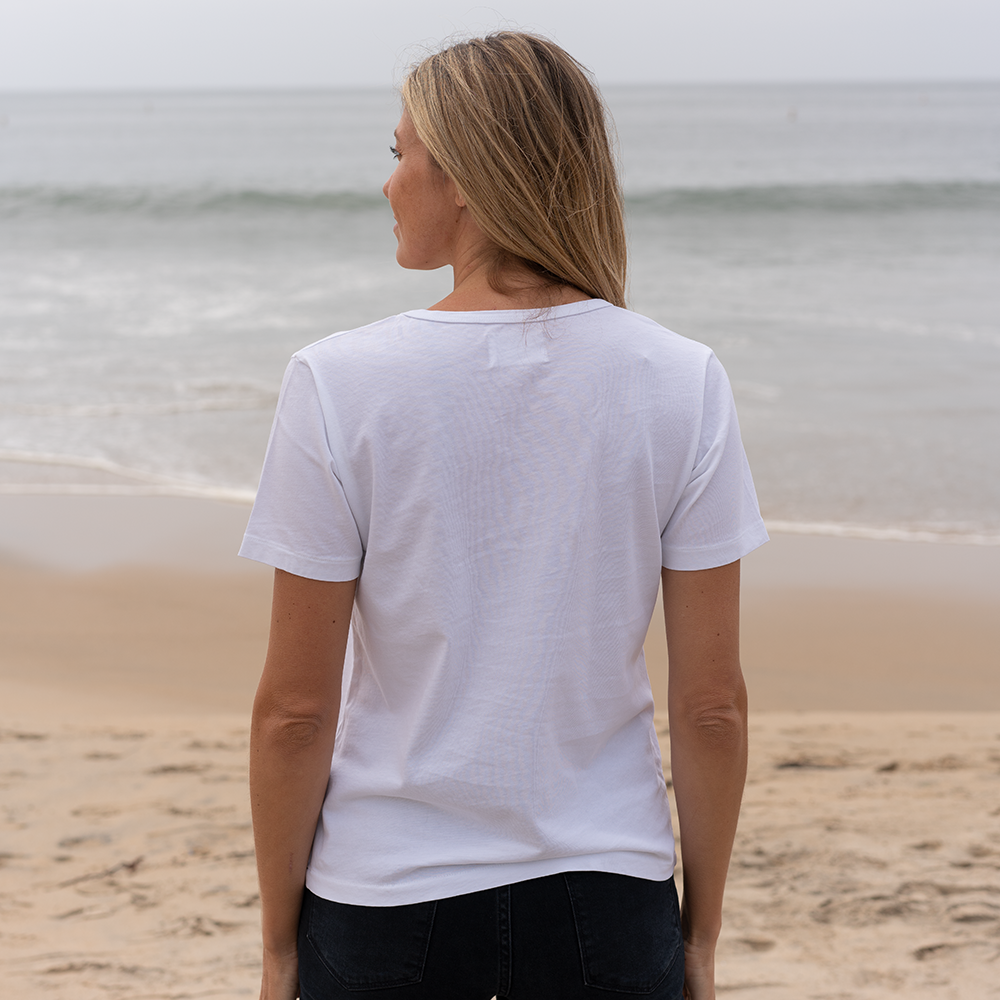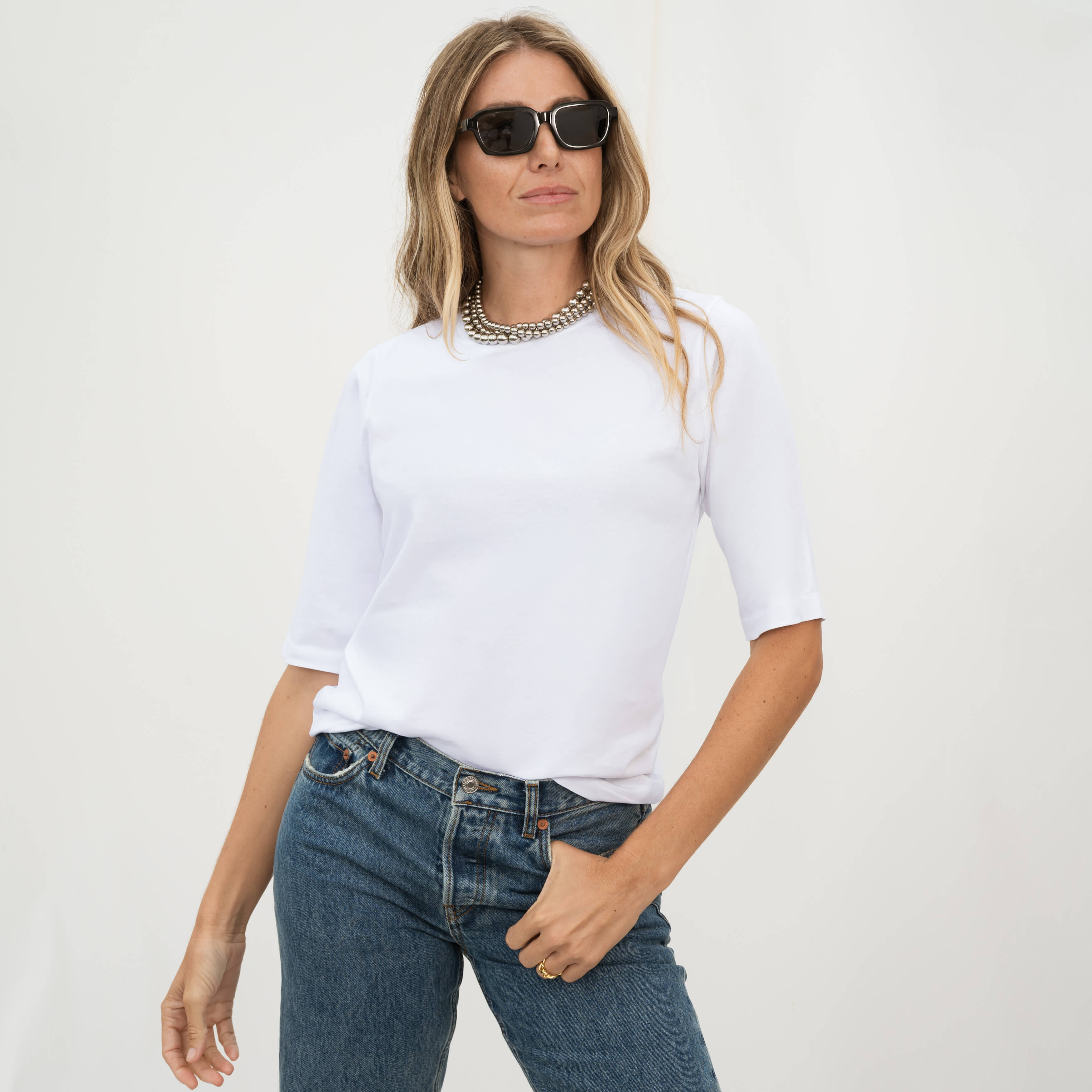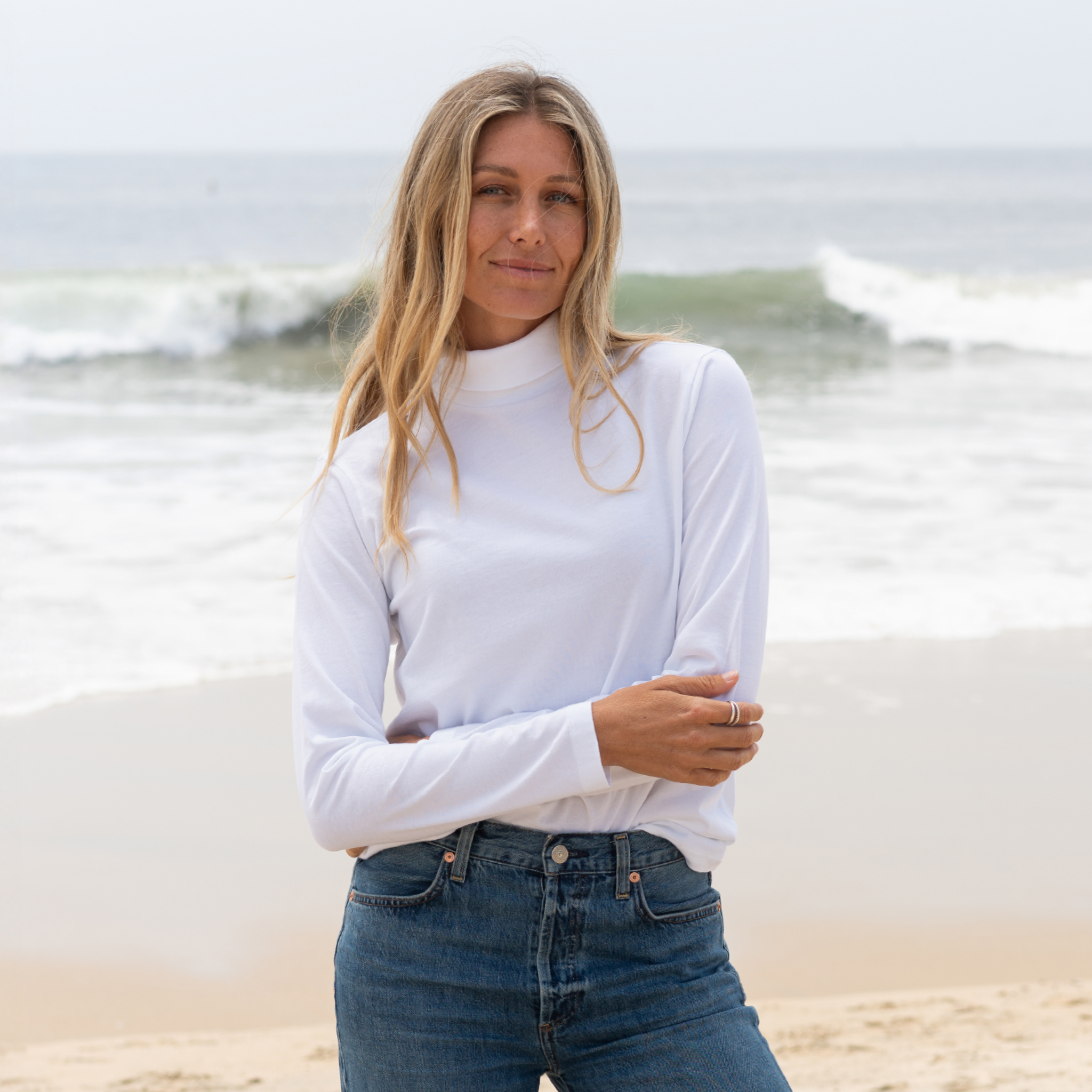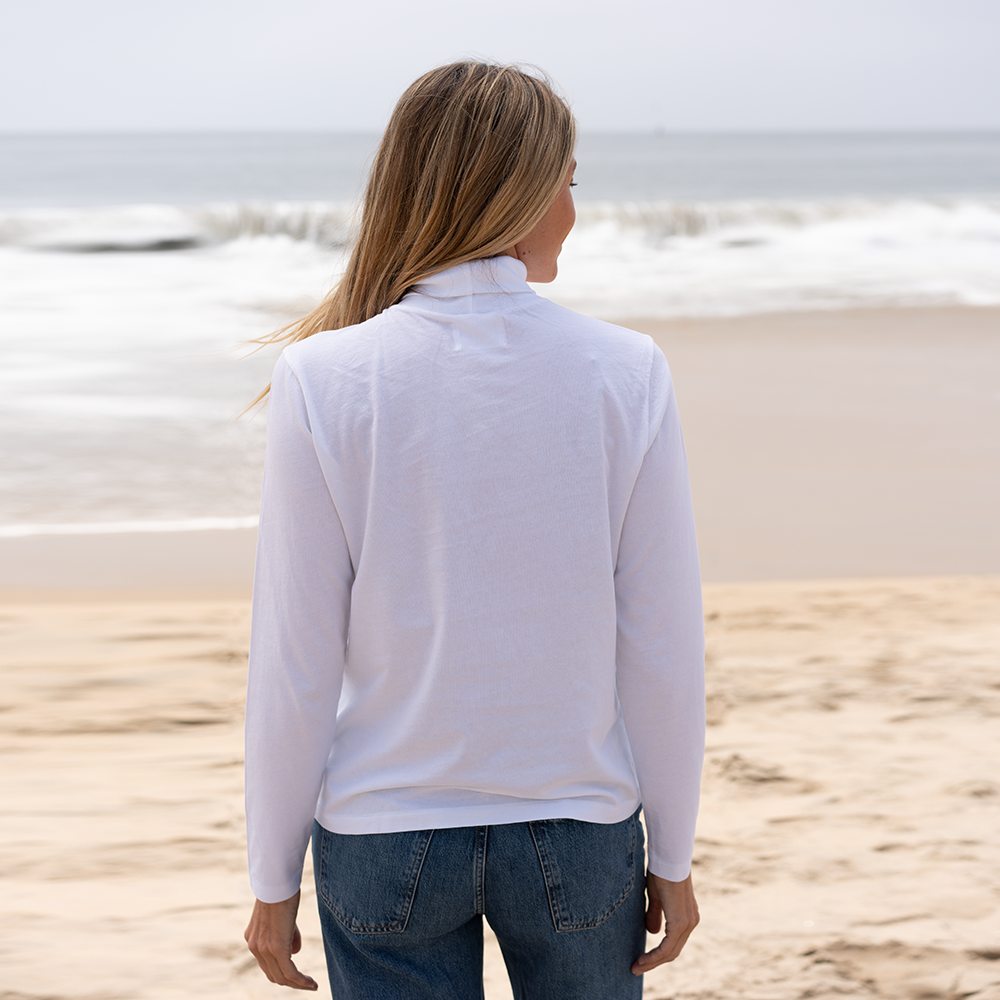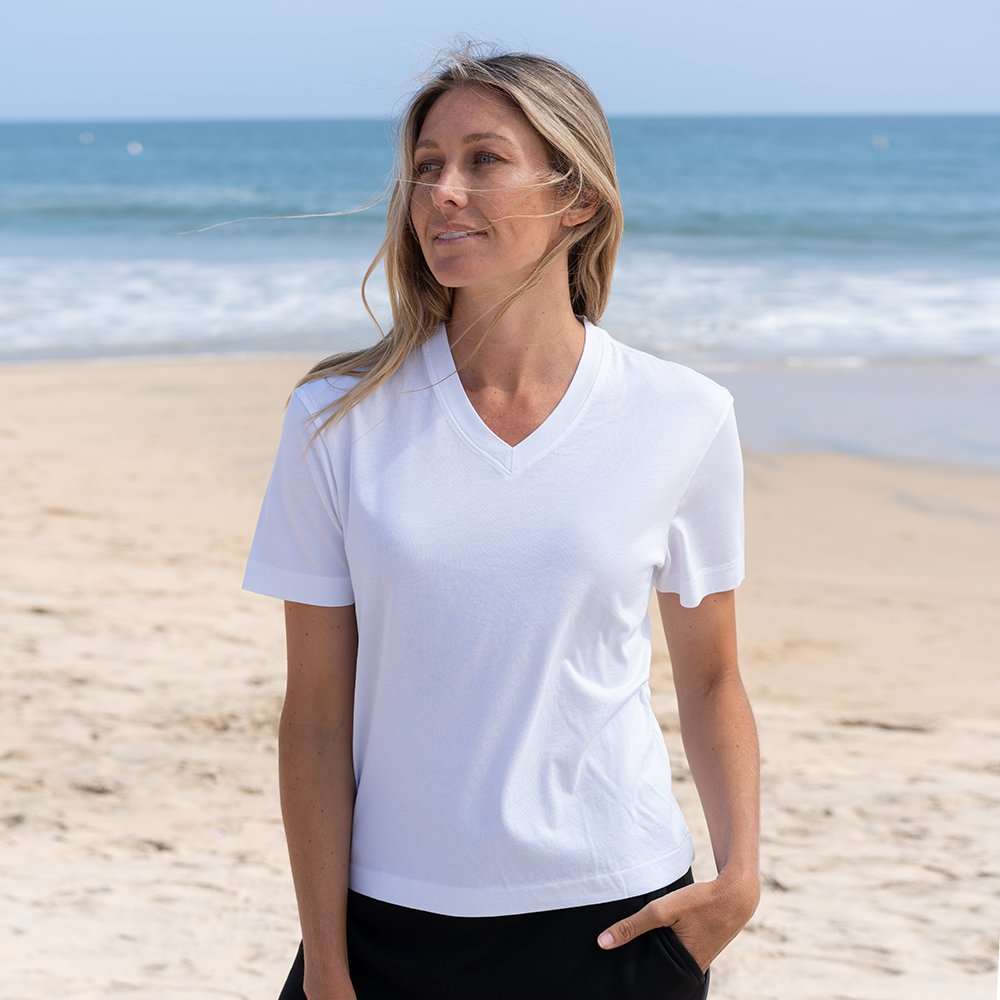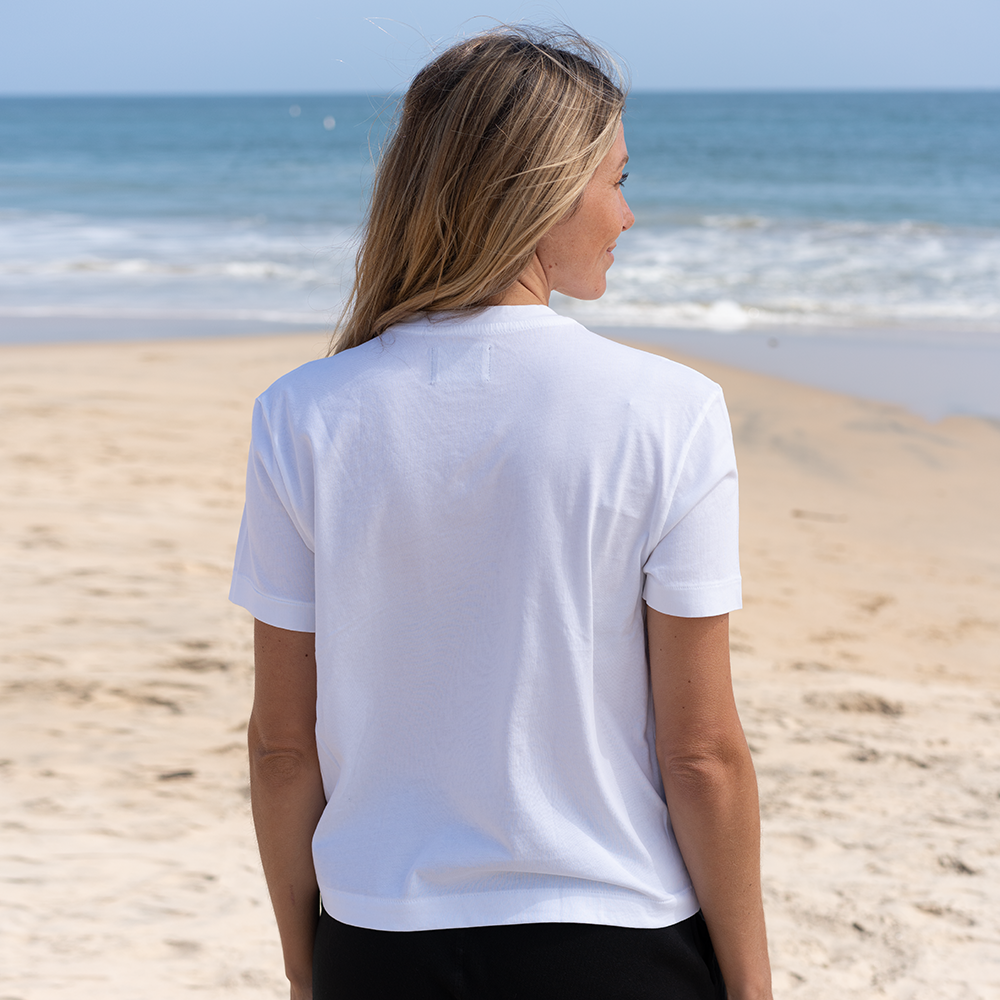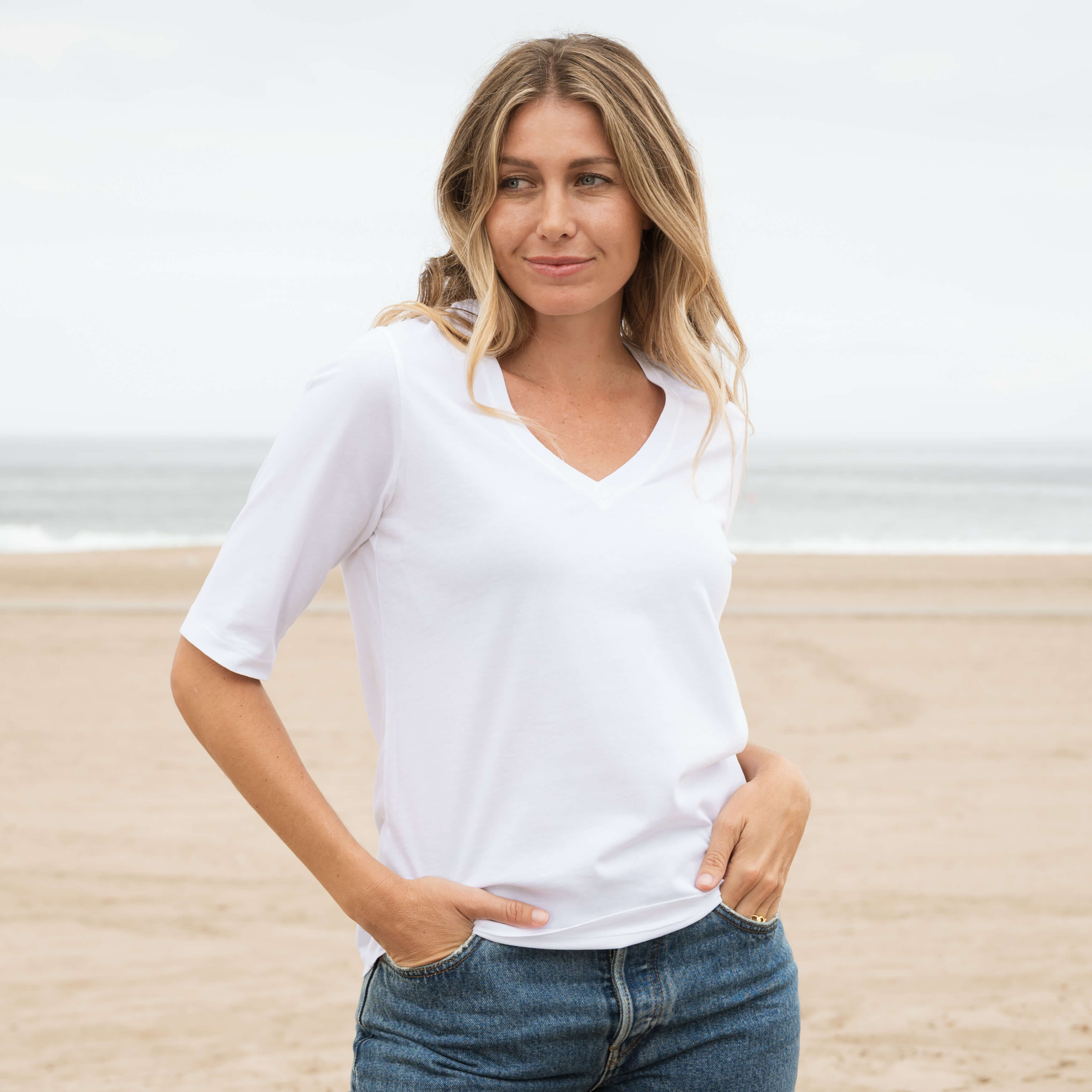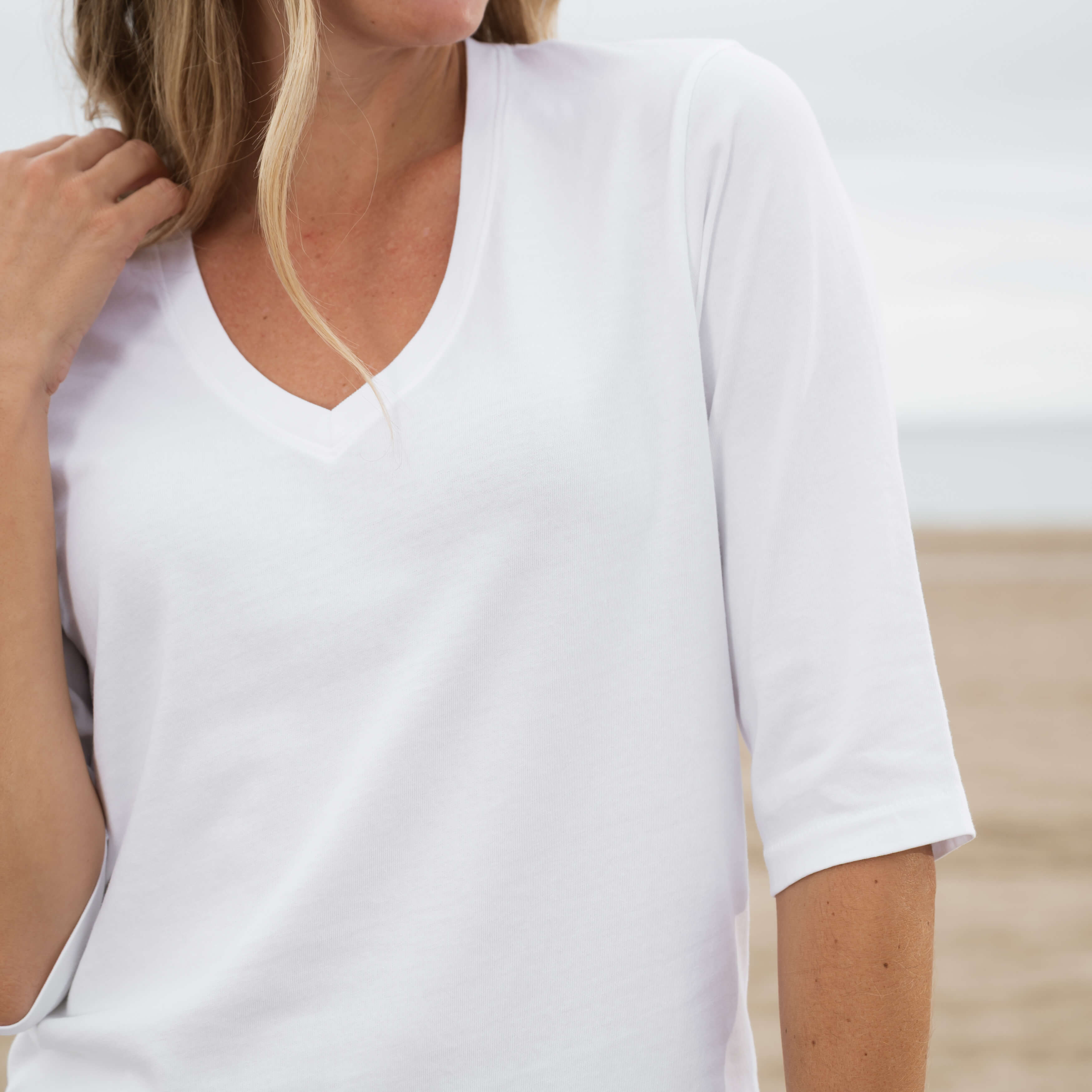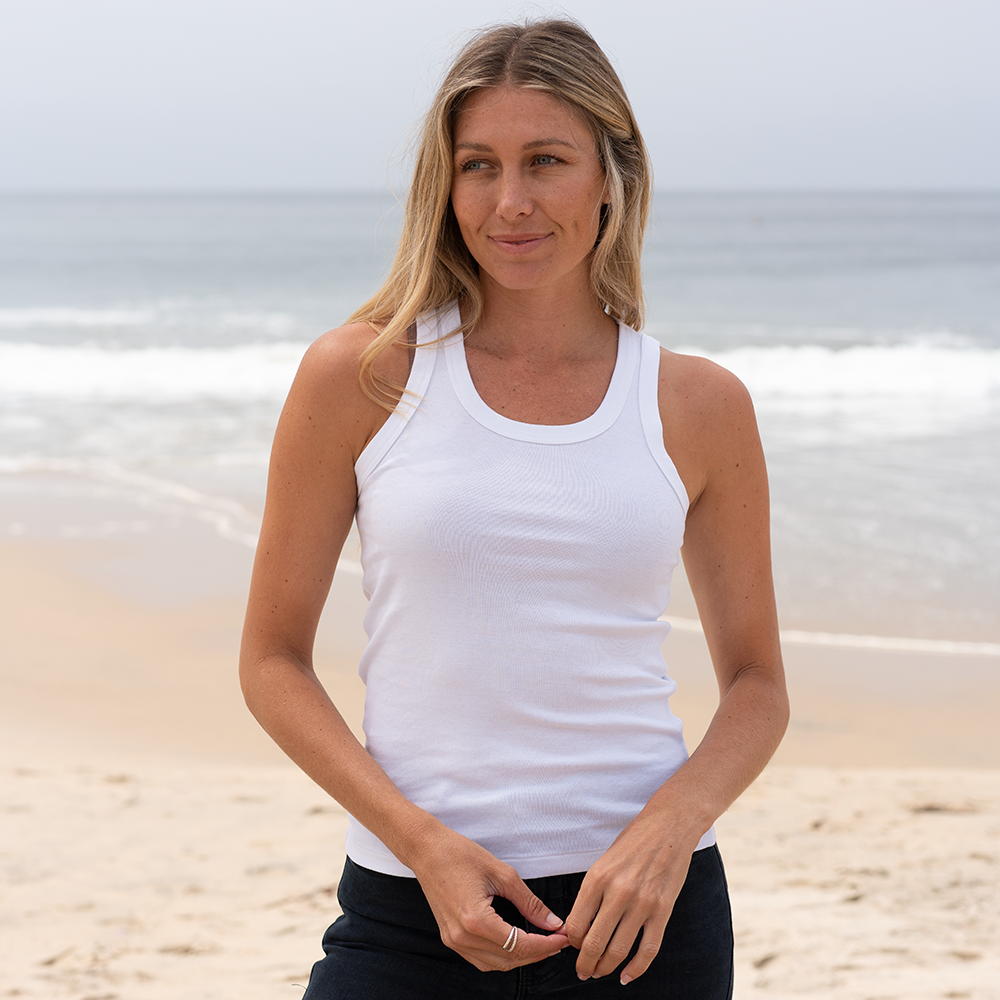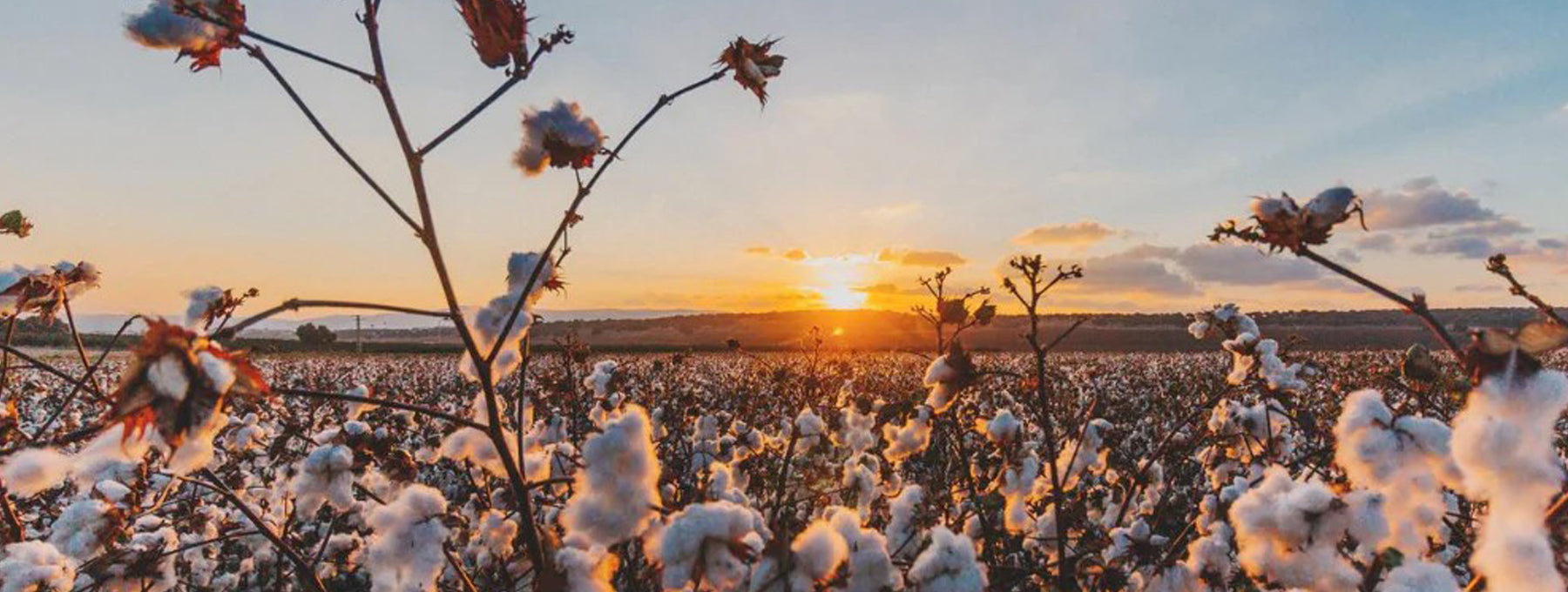
Why should I care about Fair Trade T-shirts in 2025?
As long as my T-shirt fits, wear it. Right?
Not so fast. Considering your T-shirt’s style, fit, and cost are no-brainers. But are you thinking about how it was made?
If your T-shirt was not ethically made, is it still worth it?
When you choose a fair trade T-shirt, you choose a product that’s produced the right way. Everything involved in the creation of the shirt—the earth from which the cotton is sourced, the farmers who harvest the cotton, and the workers who make the shirt—are treated fairly and ethically.
That means your dollars are supporting fair trade principles like empowered communities, sustainable income, and environmental preservation. Fair trade shirts don’t just fit right—they feel right.
Related: Follow these 4 tips to find high quality T-shirts
the best t-shirts for men
FOR MEN
Why does Fair Trade matter?
Fair trade is about more than a seal. It’s about protecting our environmental resources and treating people with care and respect.
Last year, fair trade USA helped nearly a million farmers and workers achieve better working environments. The fair trade movement is responsible for improving communities with income sustainability: when workers are being paid and treated fairly, the communities around them thrive.
Companies that are committed to fair trade say no to taking advantage of the vulnerable to make a quick buck. They’re OK with increasing their prices if it means protecting their farmers and workers and producing a better product. They view their business as a part of the community, not just a way to make money.
Fair trade businesses commit to better communities, and in doing so, create a better world.

the best t-shirts for sale
FOR WOMEN
What are organic Fair Trade T-shirts?
The Classic T-Shirt Company only sells fair trade organic T-shirts. So what exactly does that mean?
It starts with the cotton. Ours is high quality and organic, meaning it was grown in a way that’s friendly to our earth. No harsh pesticides. No destruction of soil fertility. Without the machines of mass production, it takes more concentrated effort to grow organic cotton, but the results pay off in many ways.
First, the people involved are given a fair wage. This should be a standard in all cotton production, but unfortunately that is not yet a reality. Inorganic production often exploits people for labor, and their communities for resources. If the soil becomes depleted of nutrients, communities must look elsewhere to grow food, sometimes destroying natural land. We help prevent that by making arable land reusable, so that the nature around us can continue to thrive.
Secondly, organic cotton is better quality. With ample nutrients and care, the plants we cultivate are healthier than those that are often genetically modified and hastily grown and harvested. Without chemicals, our cotton is not artificially softened, but naturally soft. And those harmful chemicals don’t end up on your T-shirts, nor do they end up contaminating local water supplies of the communities who help us produce Classic T-shirts.
Third, organic cotton production saves on average 27 gallons of water compared to conventional cotton. In fact, in 2015 alone, organic cotton farmers saved a total of 218 billion liters of water, which is the size of 87,201 Olympic swimming pools!

WHERE DO CLASSIC T-SHIRTS COME FROM?
We source 100% GOTS certified organic cotton from India. From there, the cotton makes its way to a spinning mill to be made into yarn. Once we’ve sourced the yarn, it’s sent out to our state-of-the-art, family-owned partner factory in Los Angeles, California, where all employees are guaranteed fair wages, hours, and conditions. We honor parental leave and have zero tolerance for child labor.
There, our organic fair trade and GOTS certified cotton T-shirts are knit, dyed with environmentally-friendly chemicals, designed, cut, sewn, and inspected for quality before being sent out to our fulfillment facility. And from there, they’re delivered to you in recycled, plastic-free packaging.
Want to learn more about our process and commitment to organic and fair trade principles? You can find the answers to your questions here. We’re dedicated to improving each step of the supply chain: whenever an option to improve conditions for people or the environment presents itself, we’ll be the first to take it.
Related: Why wear organic cotton T-shirts?

How can I find fair trade T shirt companies?
One easy way to find ethical T-shirts is through Good on You, an app that connects customers with fashion brands that are dedicated to making choices that improve the world. The Classic T-Shirt Company is rated “great” for our transparency and commitment to sustainability and good worker conditions.
Many fair trade T-shirt manufacturers will stamp their product with the fair trade seal. You can also check out a company’s website or search for references that could determine whether or not they’re Fair Trade Certified™. In other words, being FT Certified means the brand is committed to fair trade values including livable wages and environmental conservation.
Part of our transparency comes from sharing our story: The Classic T-Shirt Company was founded by Paul and Olga Garibian, parents with a background in fashion and technology, to set an example for our daughter, Gabriella. They made the mission of the company to sell T-shirts that are fashionable and good for the world.
As part of our mission, we also give back. We dedicate a portion of our time and profits to initiatives like ocean clean-up, safe water, and tree-planting. We believe in leaving the world better than we found it—for Gabriella, and for the future.
Related: What is sustainable luxury fashion?

Where did the fair trade movement start?
The exact origins of the fair trade Movement can be traced to many different independent organizations around the world.
Shortly after World War II, the world saw the rise of non governmental organizations (NGOs) who often partnered with religious organizations to organize supply chains in developing countries. But the roots and inspiration of these movements may date even further back, especially in Dutch colonialism. It’s said that a novel killed Dutch colonialism and directly and indirectly inspired fair trade movements across the western world.
Max Havelaar originally published in 1859 tells the story of Max, an employee of the Nederlandse Trade Company which operated in Indonesia. In protest of injustice, Max quits the company to work in solidarity with Indonesian people who were being exploited for labor by the Dutch company. It was a novel written in protest to the true harsh colonial practices of the Dutch government that also woke up much of the western world to realize much of their wealth was built in the suffering of others.
Translated into many languages, Max Havelaar arguably had the biggest impact on the Netherlands, which would eventually become the birthplace of the fair trade movement that we know today:
In 1988 the first Fair Trade label was printed in the Netherlands but only applied to coffee. It was used in response to a price drop in coffee that affected farmers who grew the coffee.
In 1997 the international Fair Trade label was born, to be applied to all consumable goods from coffee and tea to bananas and sugar.
Today fair trade encompasses thousands of commodities from consumables commodities to beauty products, jewelry, and of course, cotton. The movement has grown to become more encompassing thanks to a growing interest in ethical consumerism, sustainability, and supporting fair trade brands.
THE FAIR TRADE GLOBAL MOVEMENT
In addition to the positive human impact, fair trade comes with a positive environmental impact, which benefits humans, nature, and our entire planet. According to fair trade Certified, "When you see a product with the fair trade Certified seal, you can be sure it meets rigorous social, environmental, and economic standards. That means:
- Safe working conditions
- Environmental protection
- Sustainable livelihoods
- Community Development Funds
These four pillars encompass a variety of issues and help unite more causes to have an even larger impact. The world has always had independent organizations, whether run by philanthropists, religious organizations, or NGOs, and now we are finally starting to see more unified standards and more potential for needed change.
As awareness spreads of environmental and human rights issues, we can’t ignore our responsibility to be part of the solution instead of the problem. But change doesn’t start with consumers, supply chains, or even the products.
It starts with the brands like The Classic T-shirt Company.
Ultimately, it is the brand’s responsibility to ensure they are conducting ethical business. It is the consumer’s choice to support ethical brands, and the most common way that consumers can hold brands accountable is with the dollar.
But how do you measure if a brand is ethical “enough” to support them?
For us, it’s all or nothing. That’s why we adhere to the highest standards in our industry: Classic T-shirts are made with GOTS certified organic cotton.
“Future generations are much more informed and more responsible as a result and this will make the world population more empowered to make the world a better place.” --Paul Garibian, Classic T-shirt Company Co-founder
GOTS CERTIFICATION - FURTHER WITH FAIR TRADE
The idea for the Global Organic Textile Standard (GOTS) was born at a conference in Düsseldorf, Germany in 2002. Four founding companies from Germany, Japan, United Kingdom, and the United States came together to decide on what standards in textile production were non-negotiable.
For example, one of the main goals of creating a standardized certification like GOTS is to end “greenwashing” which is a deceptive marketing practice where companies embellish the environmental friendliness of their products. With third party agencies holding brands accountable, consumers can trust that anything that carries the GOTS certification label has been verified not just by the company, but a trustworthy, multinational entity.
The Classic T-shirt Company only sells GOTS certified T-shirts, and we hold ourselves to the same values of transparency. We have nothing to hide in terms of how our T-shirts were made, where they come from, and how we came up with the cost.
In fact, we like to encourage discussion about our T-shirts and sustainable fashion in general. As we grow, we learn new ways to improve our products and how we operate as an ethical fashion brand.
- We offer plastic-free shipping. Our T-shirts are sent to you in packaging that is 100% recycled cardboard and 100% recyclable.
- We are committed to never participate in seasonal sales due to their negative impact on the environment. Mass production often leads to mass waste, not to mention a spike in traffic when everyone and their neighbor rushes to take advantage of the latest Black Friday Discount. Learn more about why seasonal sales are bad for the planet.
- We pledge 1%. That means we give 1% of the Classic T-shirt Company’s time, profits, and equity to causes we believe in, so that we can further enhance the positive impact of operating as a sustainable brand. A portion of the proceeds from every Classic T-shirt goes to safe water, tree planting, or ocean cleanup. Learn more about the charities and causes we support here.
FAIR TRADE PLAIN T-SHIRTS, FAIR TRADE COTTON T-SHIRTS, HIGH QUALITY T-SHIRTS AND MORE…
We don’t want you to think that fair trade T-shirts have to come with less comfort, less style, or even less luxury. In fact, you can have it all with a Classic T-shirt.
The Classic T-Shirt Company is synonymous with luxury: our shirts are made from fine natural fabric that feels soft and light, yet stays strong despite daily washes and wears. Our semi-fitted for men and boyfriend fit for women T-shirt designs mean your T-shirt won’t be too loose or too tight—you’ll be able to move, play, and live life comfortably while looking your best.
Ready to find a T-shirt you’ll feel good about? Check out our fair trade men’s T-shirts and fair trade women’s T-shirts for a selection of fair trade long sleeve T-shirts, crew neck tees, V-necks and more. We’ve started with the basics, and have since expanded to offering more colors while using environmentally-friendly dyes. Feel free to let us know what you’d like to see next from the Classic T-shirt Company.
Related: Are expensive luxury T-shirts really worth it?



